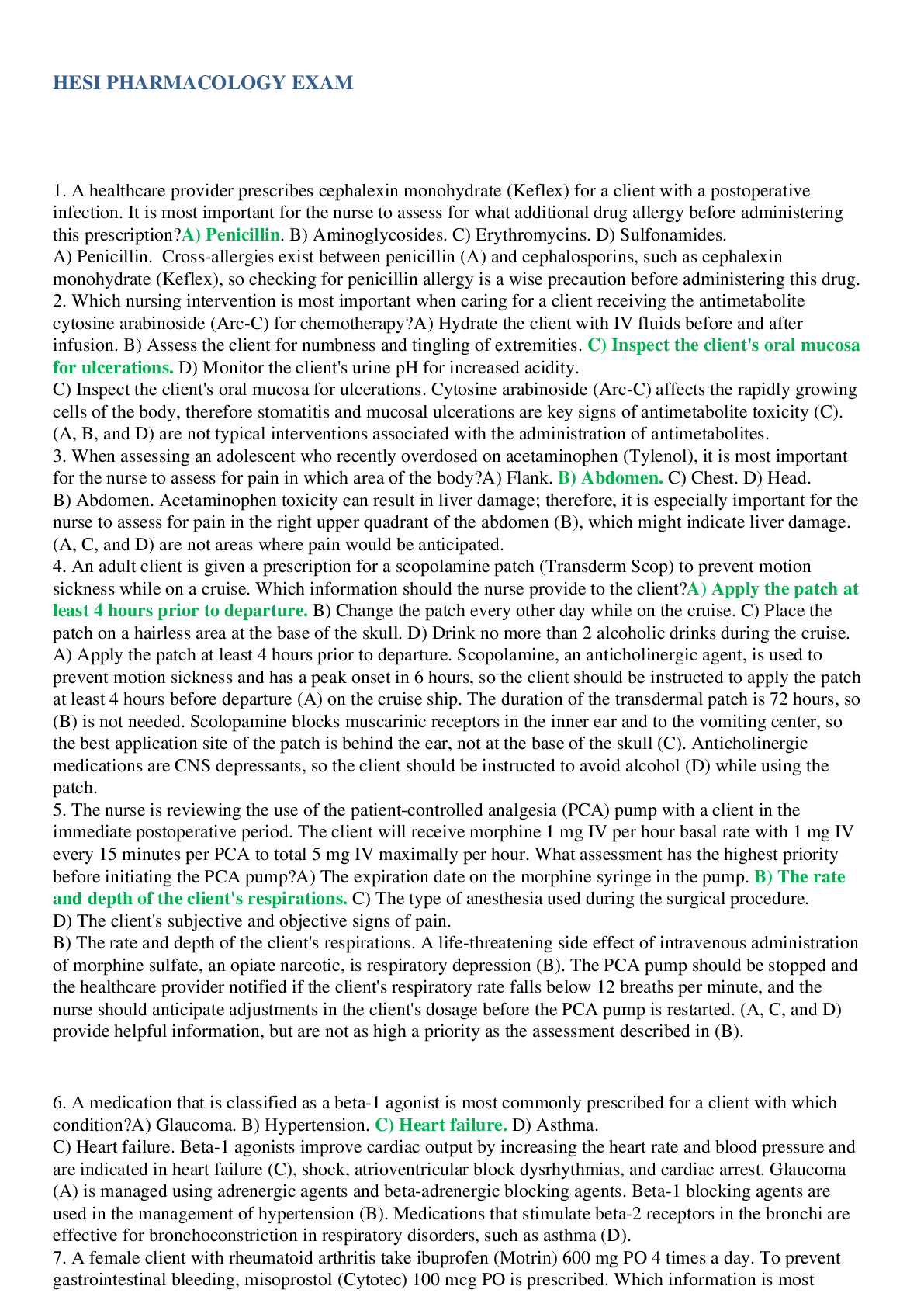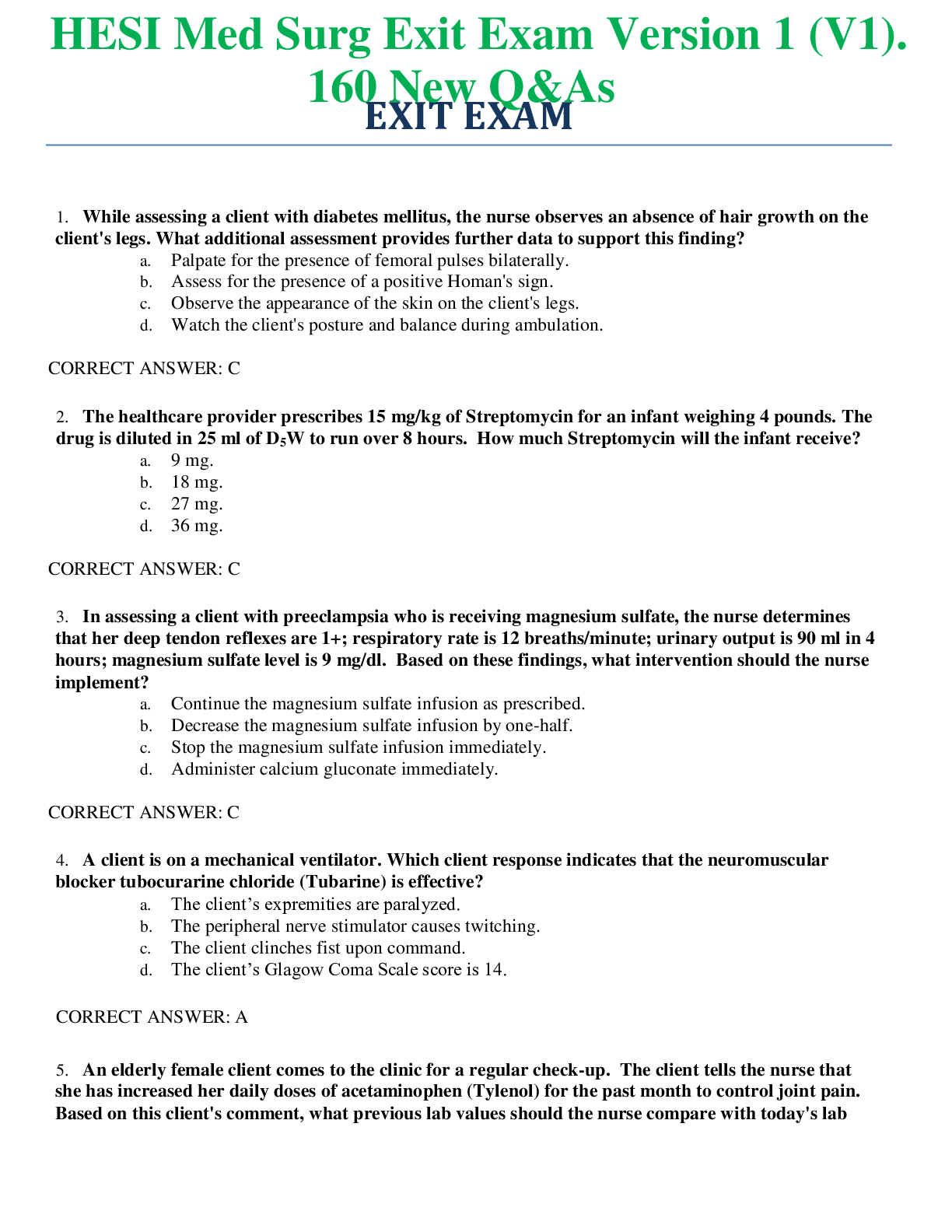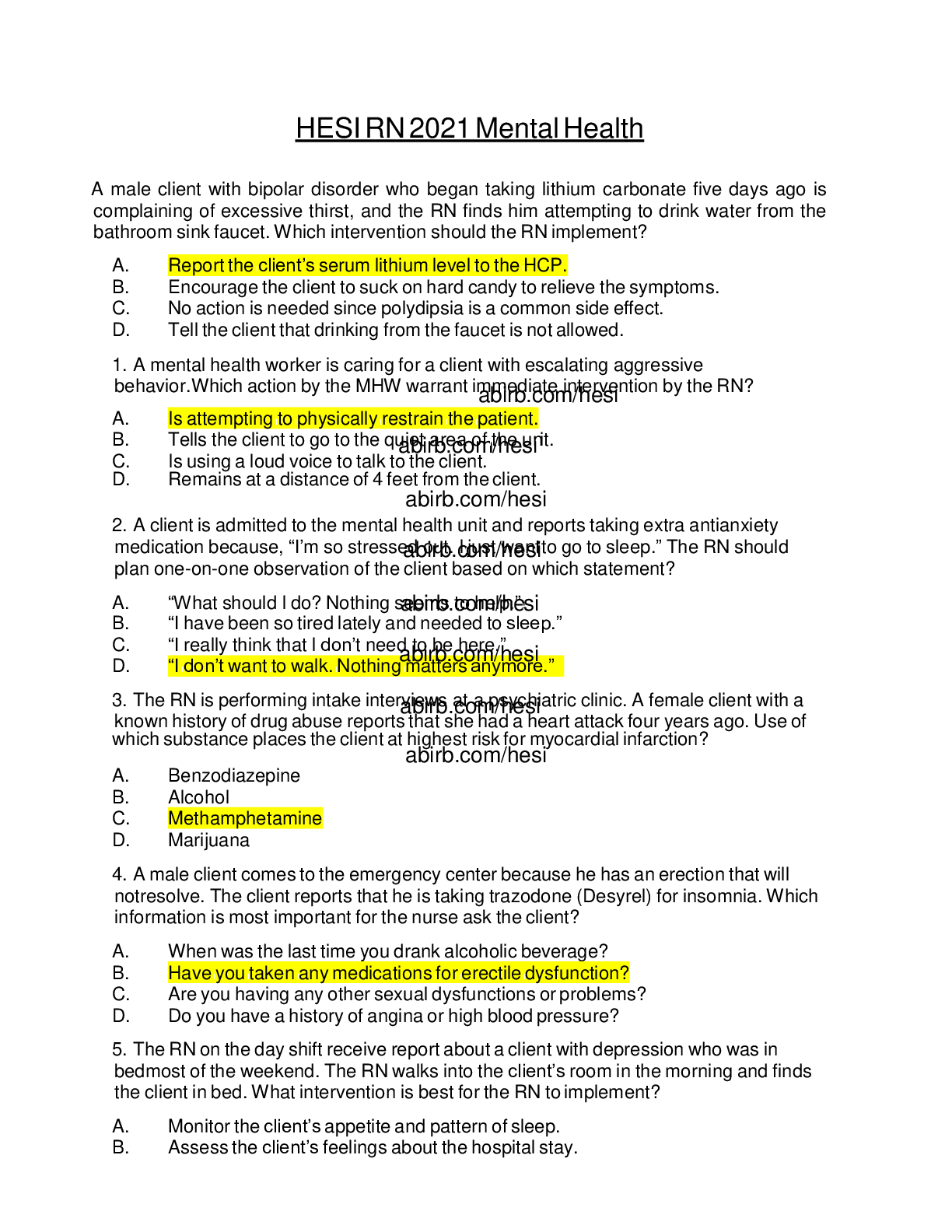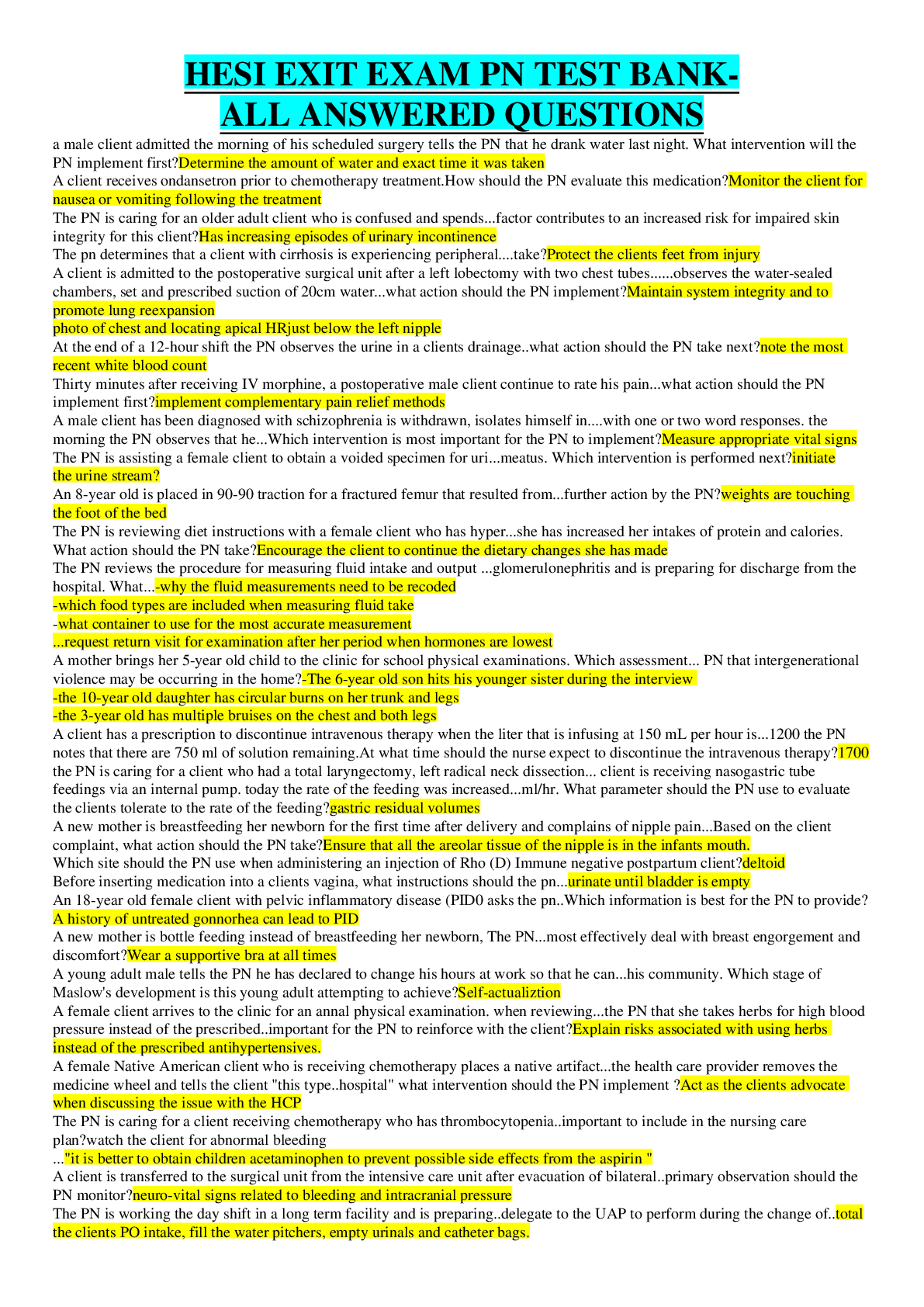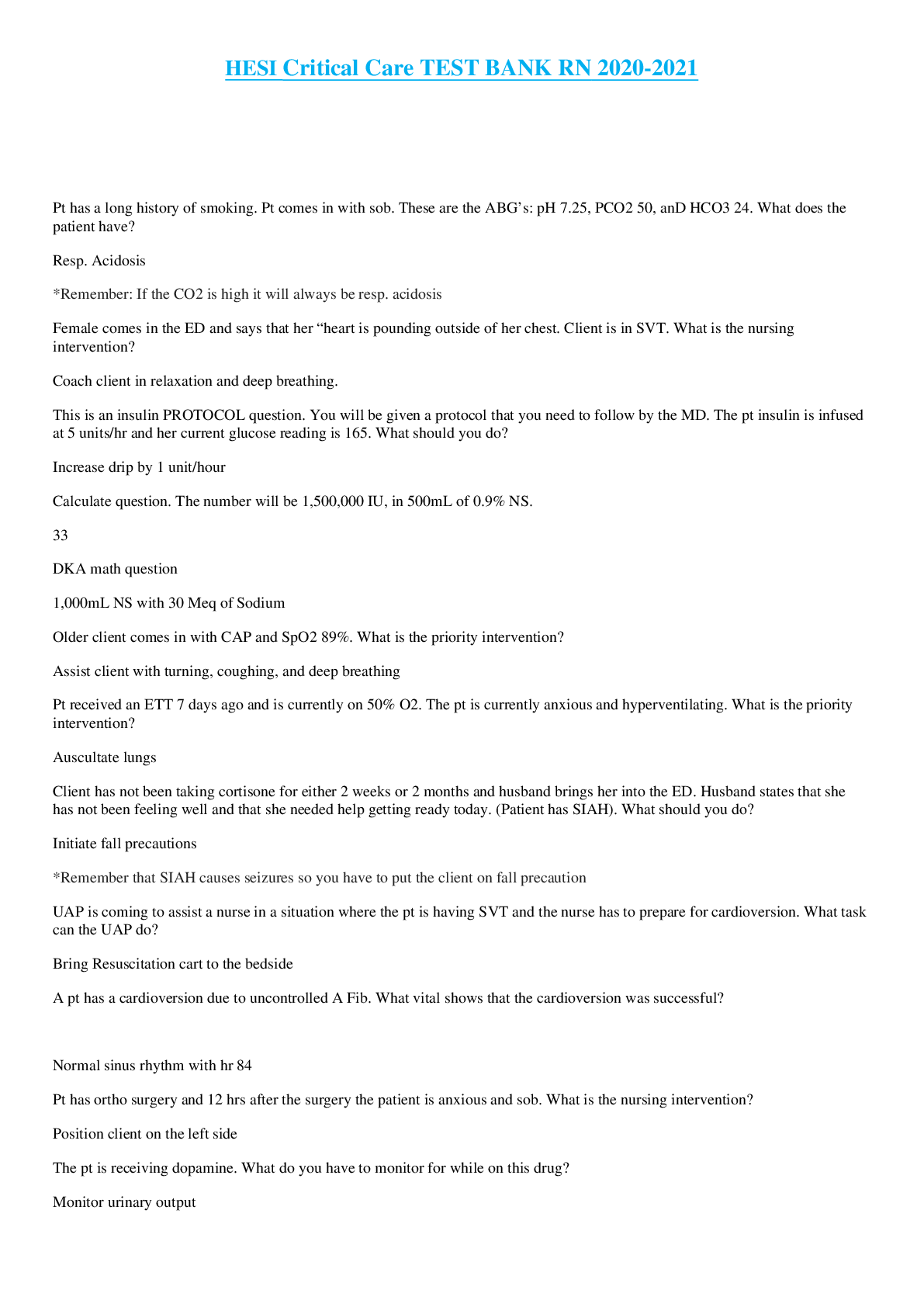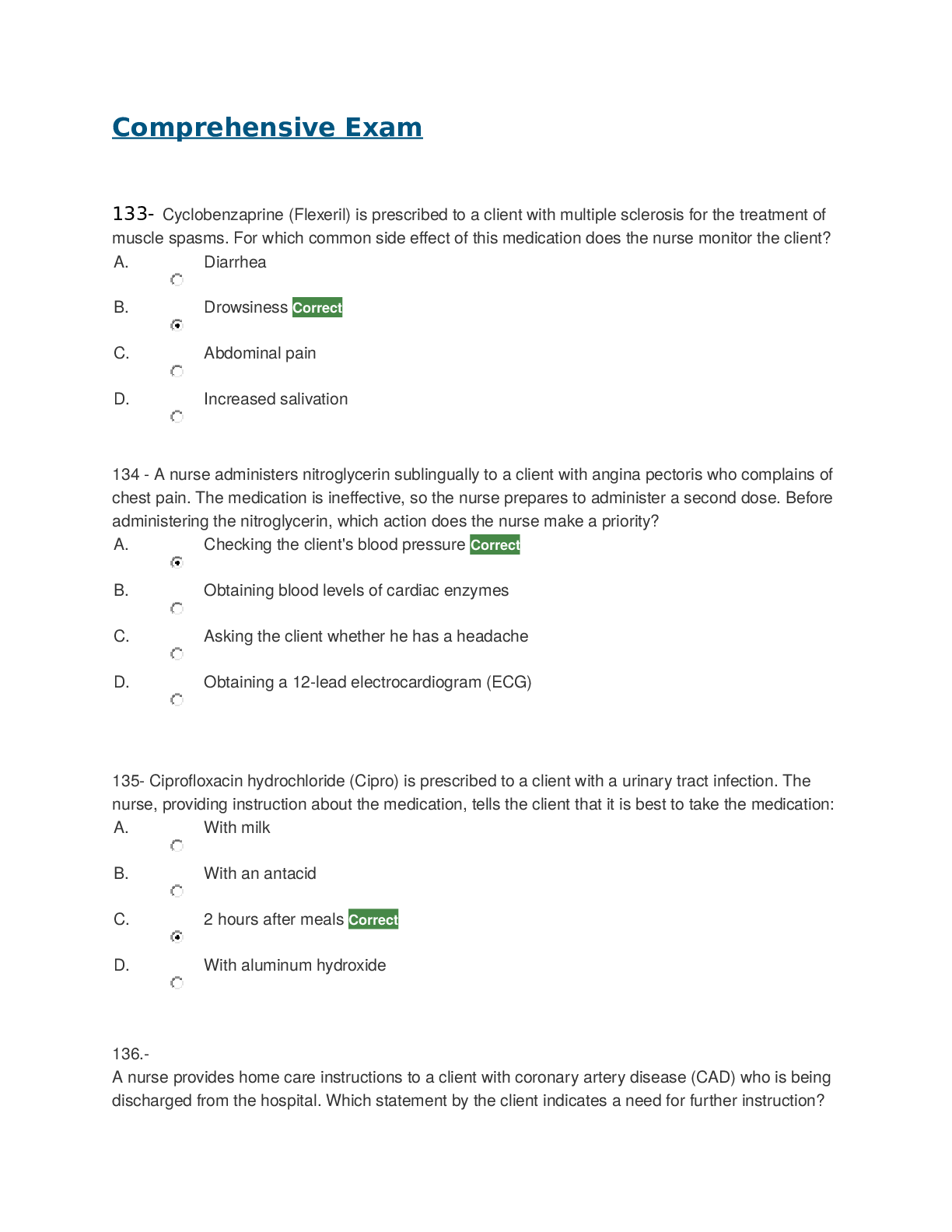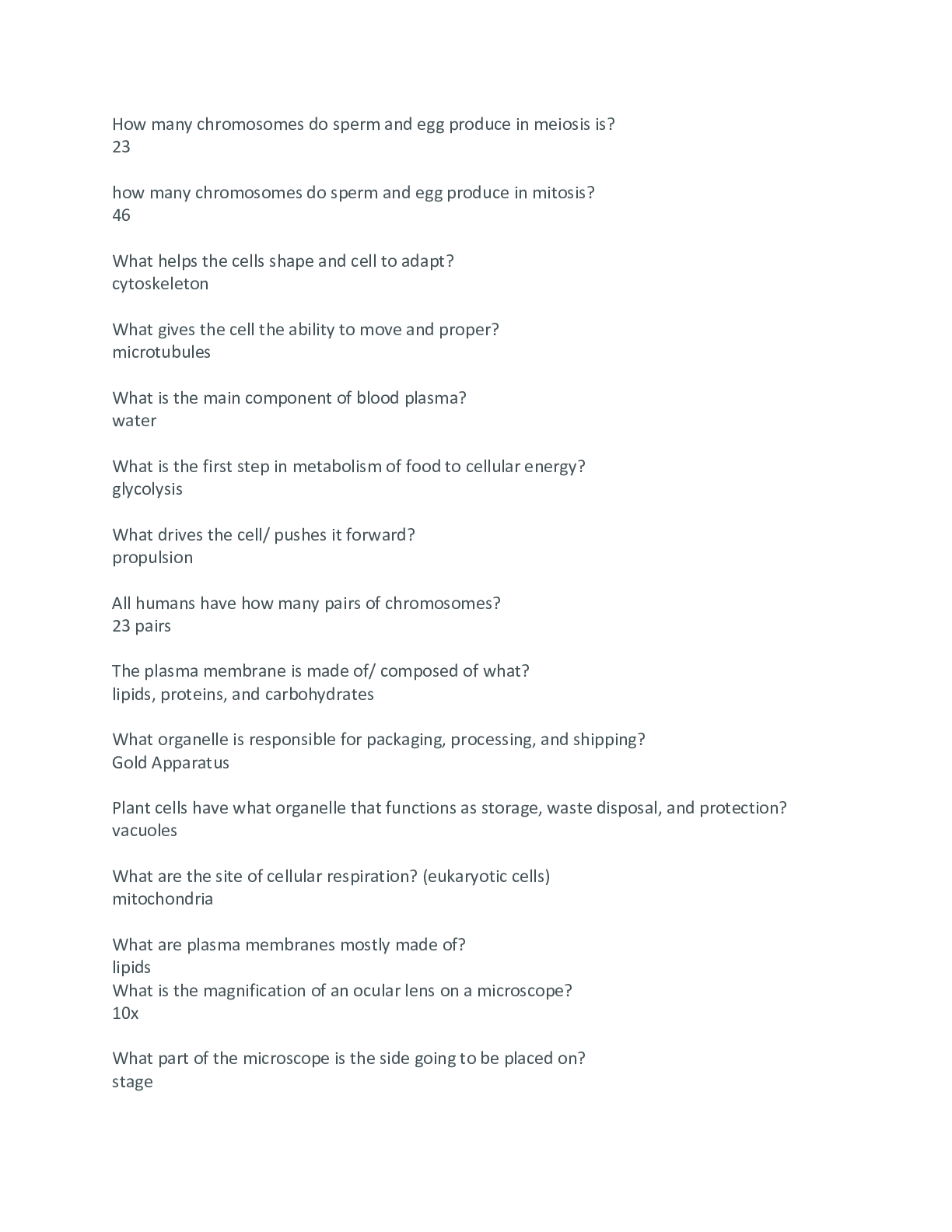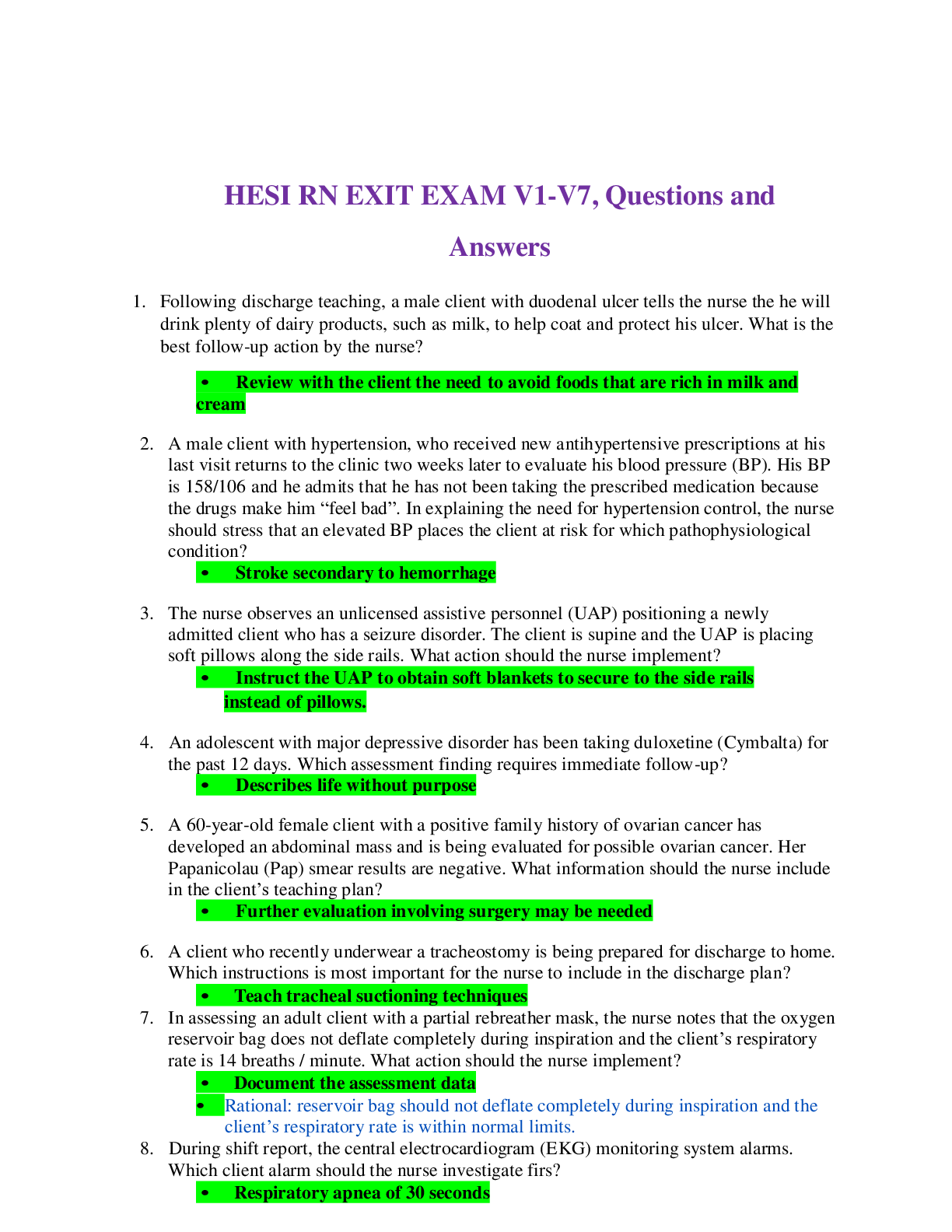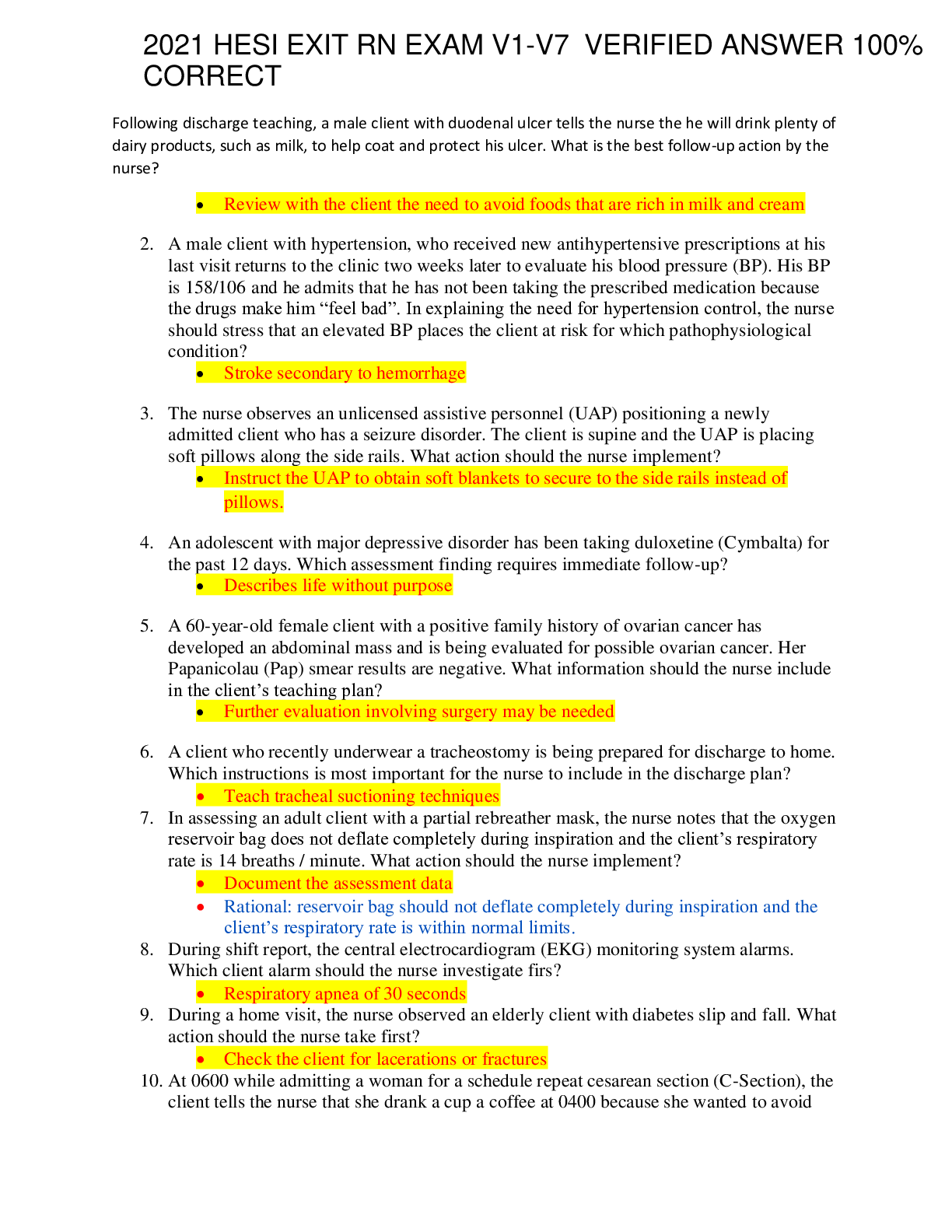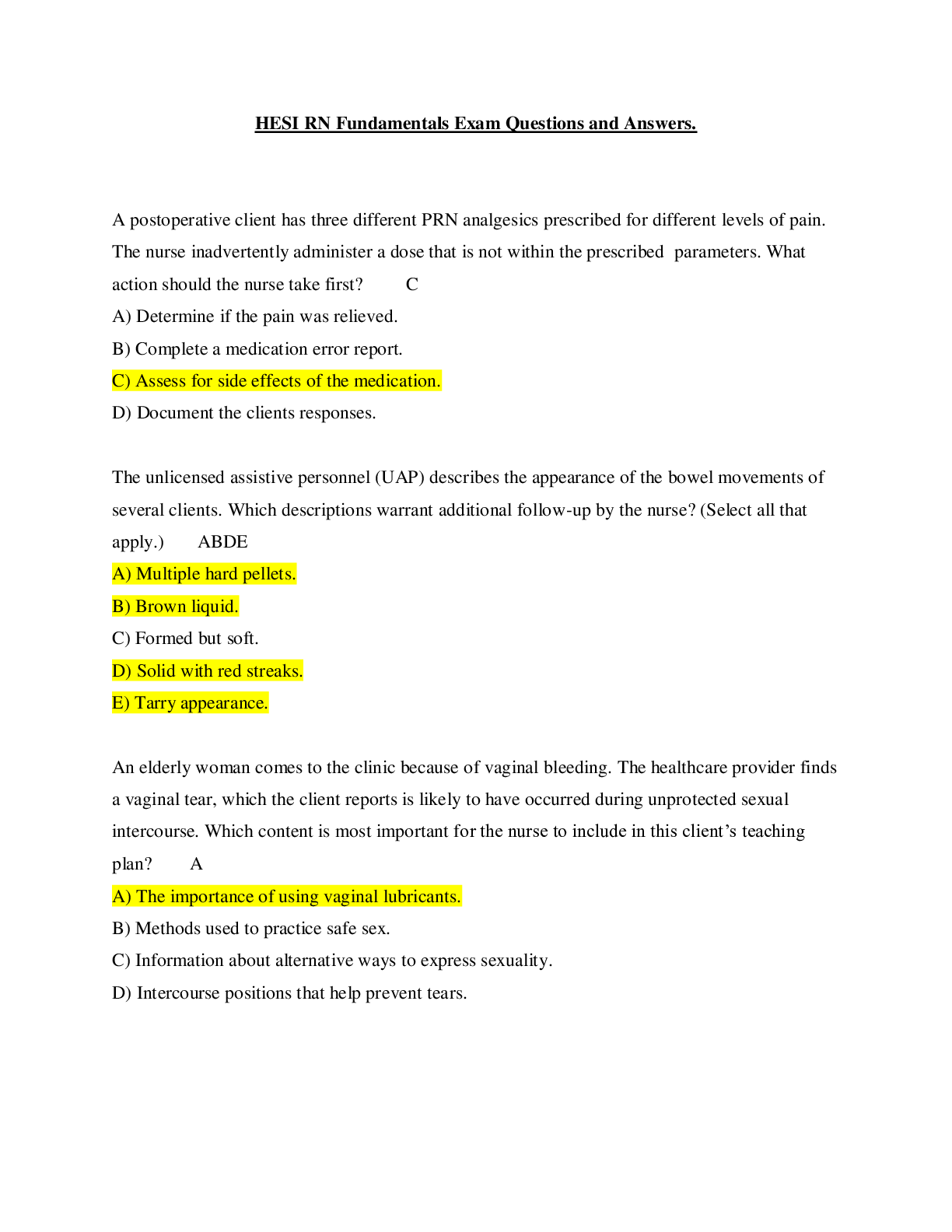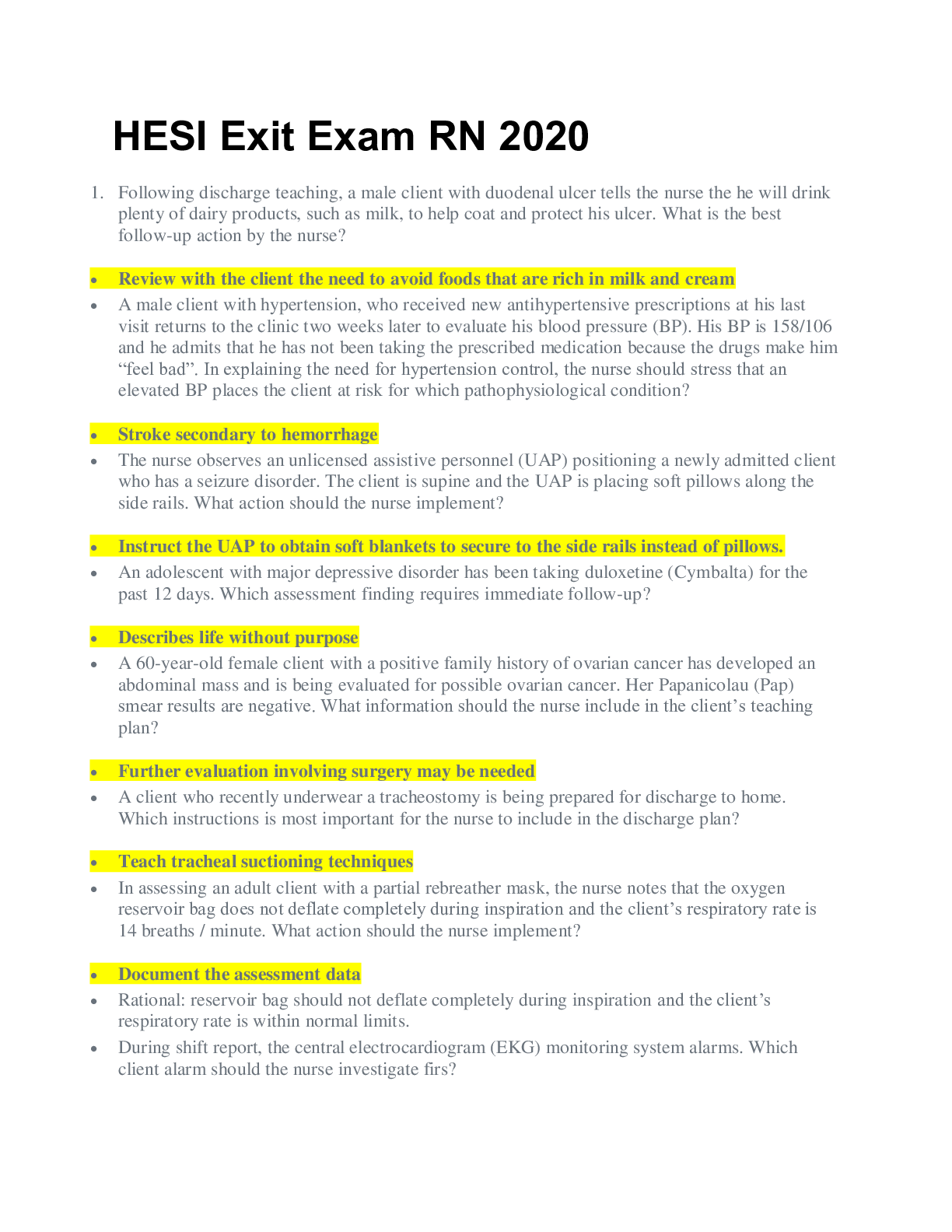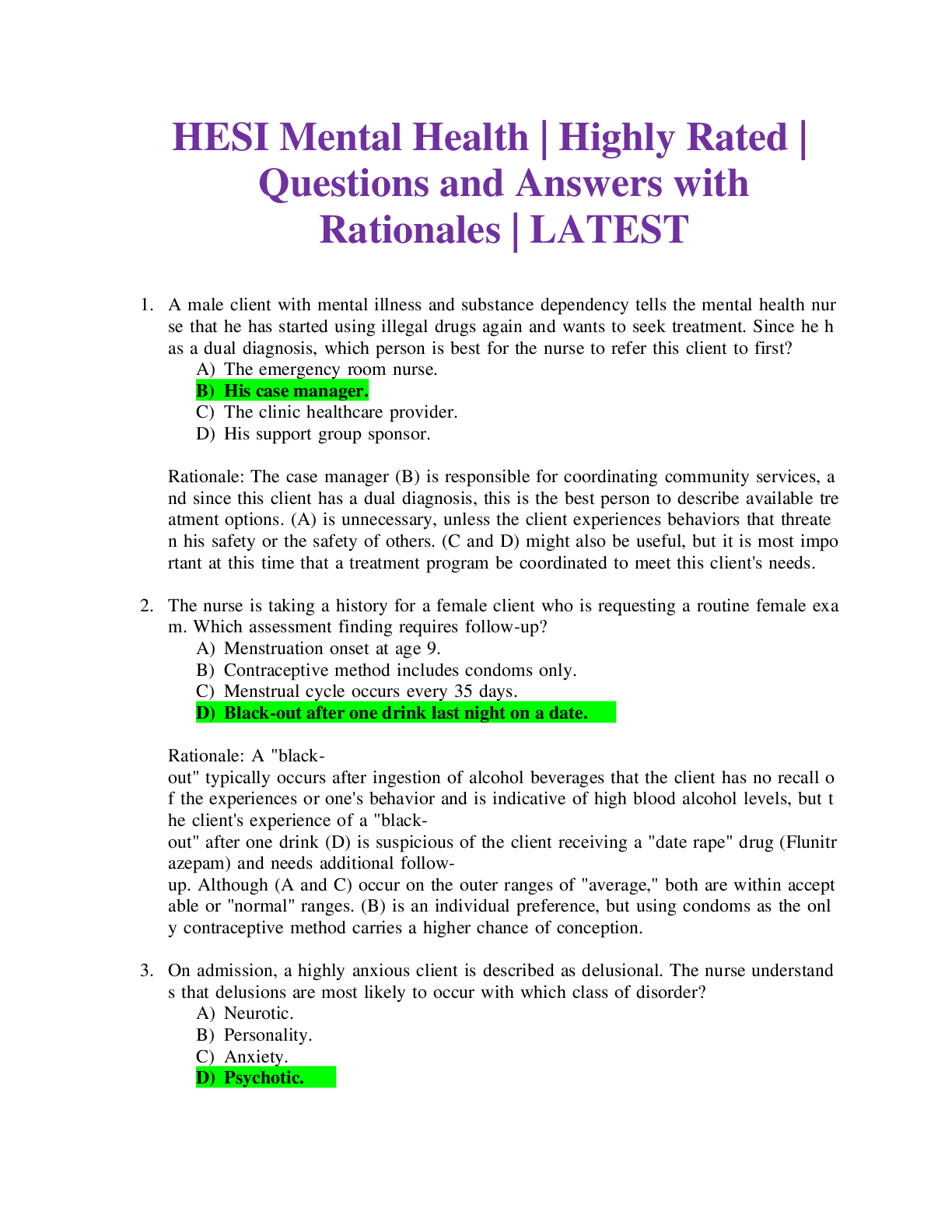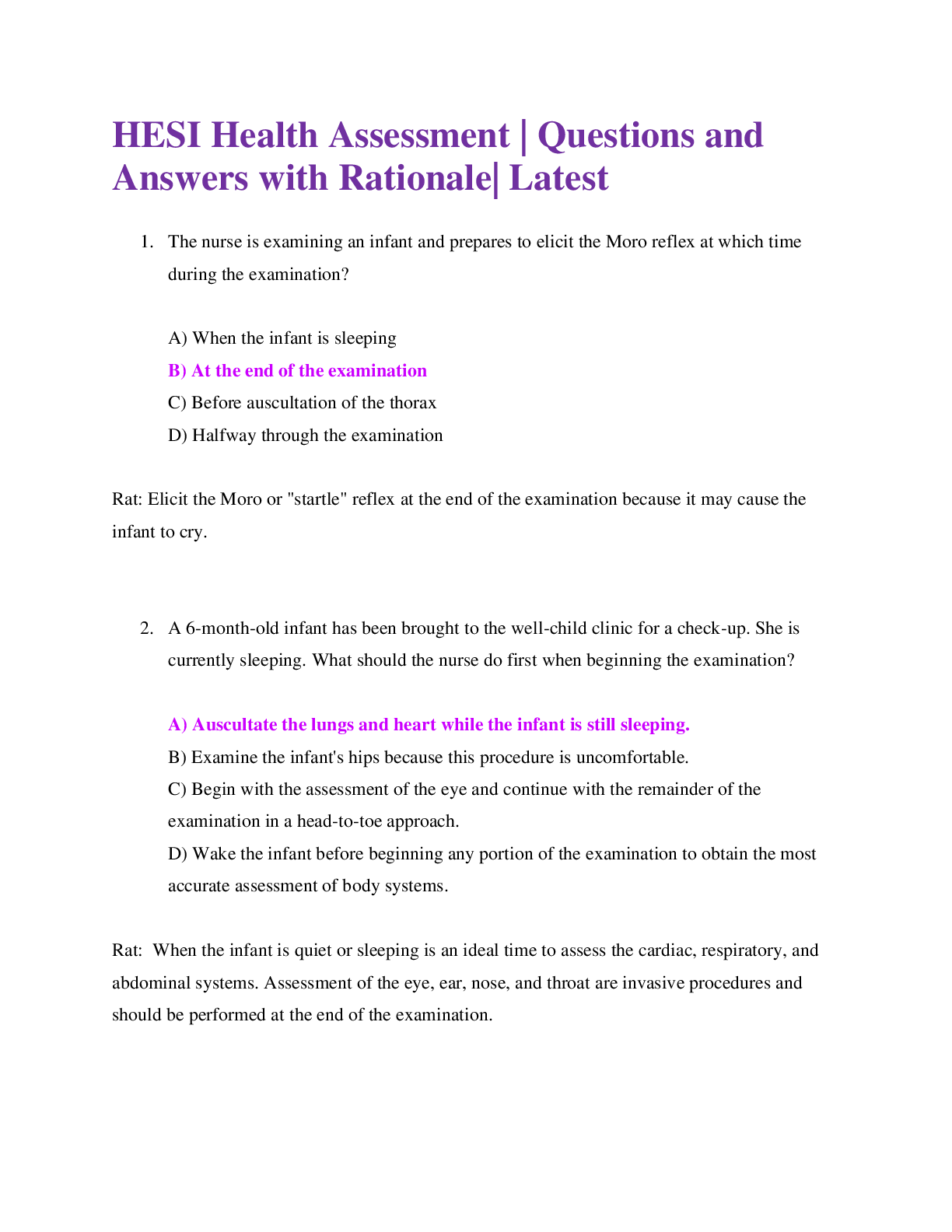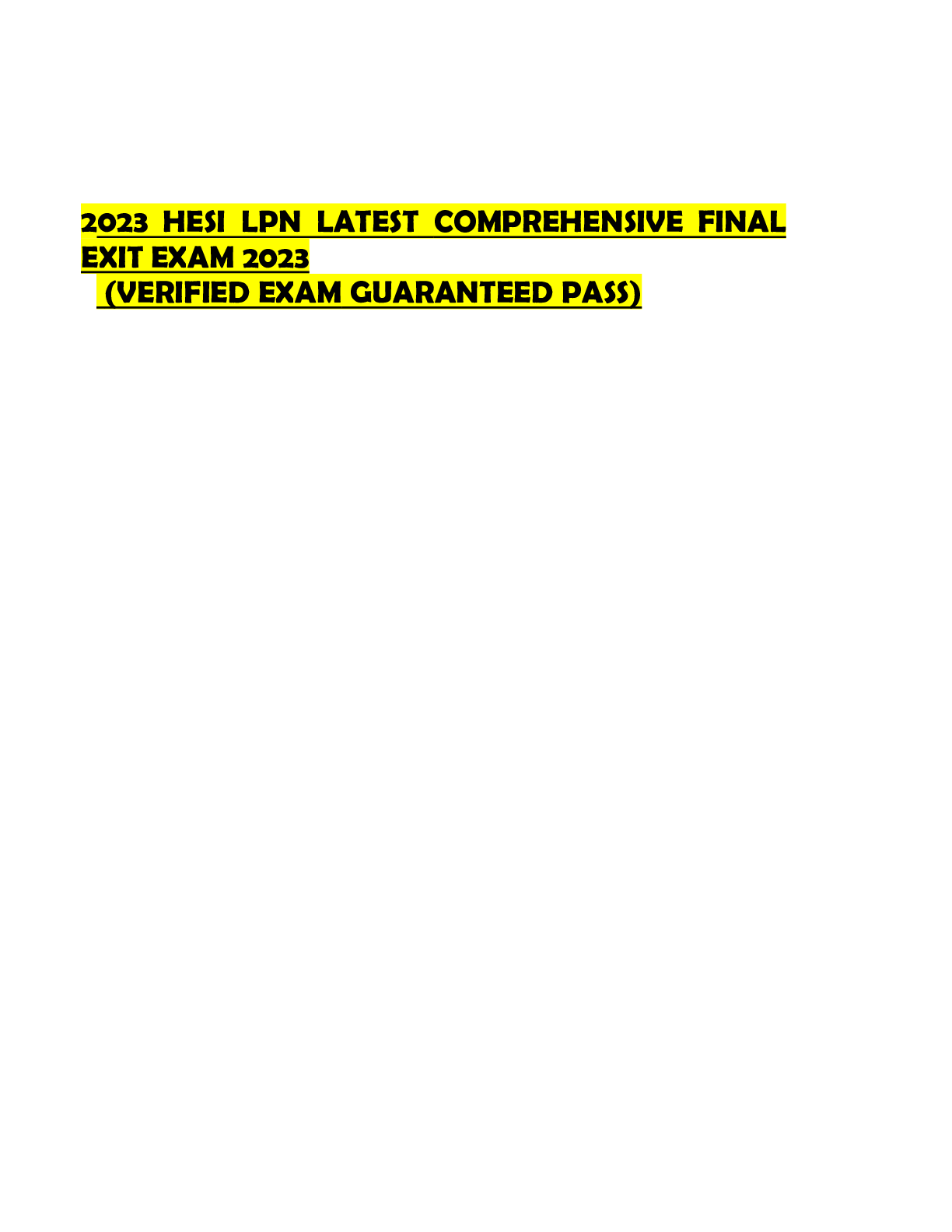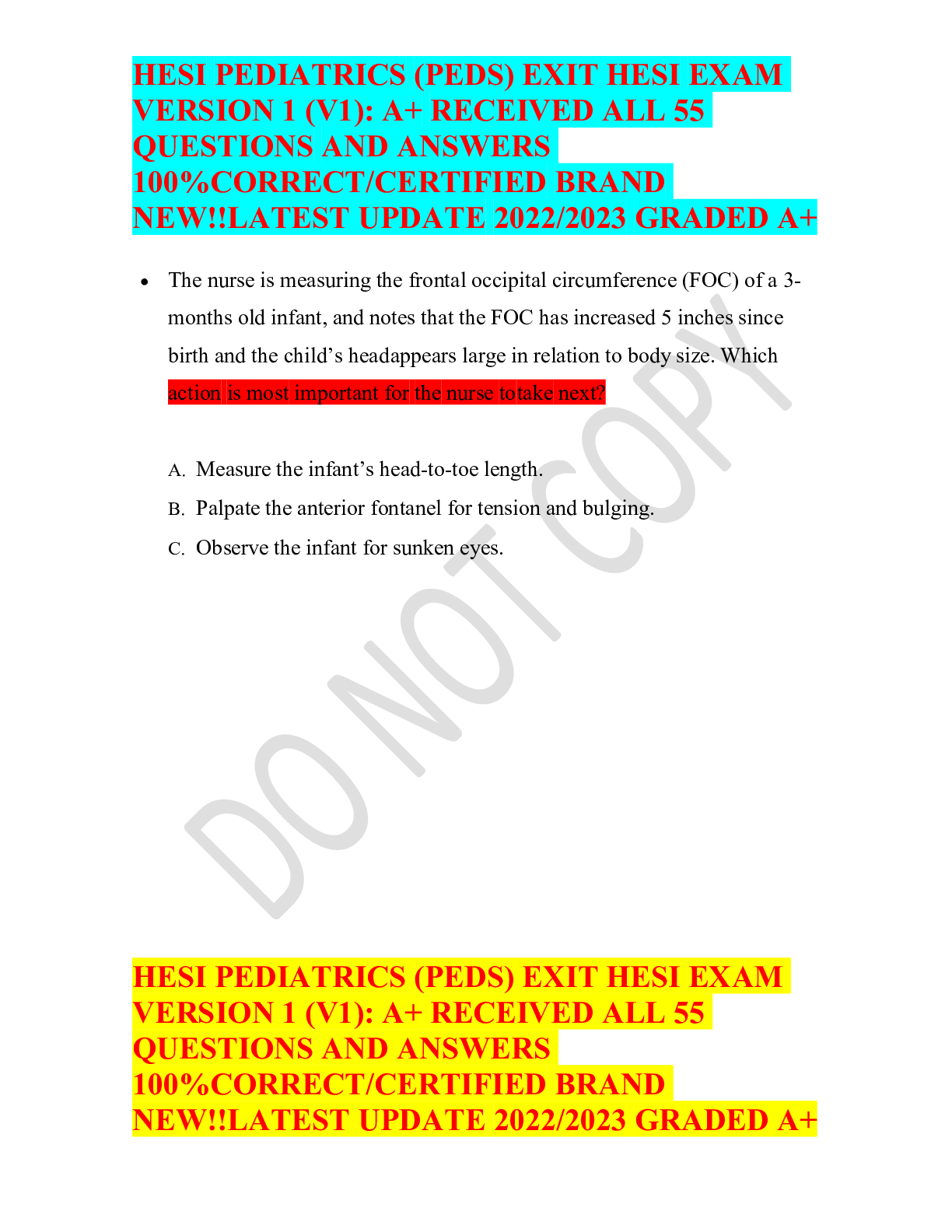HESI PEDIATRICS PROCTORED EXAM
Document Content and Description Below
HESI PEDIATRICS PROCTORED EXAM patient has sleep deprivation. Which statement by the patient will indicate to the nurse that outcomes are being met? a. “I wake up only once a night to go to the b... athroom.” b. “I feel rested when I wake up in the morning.” c. “I go to sleep within 30 minutes of lying down.” d. “I only take a 20-minute nap during the day.” ANS: B Being able to sleep and feeling rested would indicate that outcomes are being met for sleep deprivation. Limiting a nap to 20 minutes is an intervention to promote sleep. Going to sleep within 30 minutes indicates a goal for insomnia. Waking up only once may indicate nocturia is improving but does not relate to sleep deprivation. 26. An older-adult patient is visiting the clinic after a fall during the night. The nurse obtains information on what medications the patient takes. Which medication mostlikely contributed to the patient’s fall? a. Melatonin b. L-tryptophan c. Benzodiazepine d. Iron supplement ANS: C The most likely cause is a benzodiazepine. If older patients who were recently continent, ambulatory, and alert become incontinent or confused and/or demonstrate impaired mobility, the use of benzodiazepines needs to be considered as a possible cause. This can contribute to a fall in an older adult. Short-term use of melatonin has been found to be safe, with mild side effects of nausea, headache, and dizziness being infrequent. Iron supplements may be given to patients with restless legs syndrome. Some substances such as L-tryptophan, a natural protein found in foods such as milk, cheese, and meats, promote sleep; while it does promote sleep, it is not the most likely to cause mobility problems. MULTIPLE RESPONSE 1. The nurse is caring for a patient who has not been able to sleep well while in the hospital, leading to a disrupted sleep-wake cycle. Which assessment findings will the nurse monitor for in this patient? (Select all that apply.) a. Changes in physiological function such as temperature b. Decreased appetite and weight loss c. Anxiety, irritability, and restlessness d. Shortness of breath and chest pain e. Nausea, vomiting, and diarrhea f. Impaired judgment ANS: A, B, C, F The biological rhythm of sleep frequently becomes synchronized with other body functions. Changes in body temperature correlate with sleep pattern. When the sleep-wake cycle becomes disrupted, changes in physiological function such as temperature can occur. Patients can experience decreased appetite, loss of weight, anxiety, restlessness, irritability, and impaired judgment. Gastrointestinal and respiratory/ cardiovascular symptoms such as shortness of breath and chest pain are not symptoms of a disrupted sleep cycle. 2. The nurse is caring for a patient in the intensive care unit who is having trouble sleeping. The nurse explains the purpose of sleep and its benefits. Which information will the nurse include in the teaching session? (Select all that apply.) a. NREM sleep contributes to body tissue restoration. b. During NREM sleep, biological functions increase. c. Restful sleep preserves cardiac function. d. Sleep contributes to cognitive restoration. e. REM sleep decreases cortical activity. ANS: A, C, D Sleep contributes to physiological and psychological restoration. NREM sleep contributes to body tissue restoration. It allows the body to rest and conserve energy. This benefits the cardiac system by allowing the heart to beat fewer times each minute. During stage 4, the body releases growth hormone for renewal and repair of specialized cells such as the brain. During NREM sleep, biological functions slow. REM sleep is necessary for brain tissue restoration and cognitive restoration and is associated with a change in cerebral blood flow and increased cortical activity. 3. The patient and the nurse discuss the need for sleep. After the discussion, the patient is able to state factors that hinder sleep. Which statements indicate the patient has a good understanding of the teaching? (Select all that apply.) a. “Drinking coffee at 7 PM could interrupt my sleep.” b. “Staying up late for a party can interrupt sleep patterns.” c. “Exercising 2 hours before bedtime can decrease relaxation.” d. “Changing the time of day that I eat dinner can disrupt sleep.” e. “Worrying about work can disrupt m [Show More]
Last updated: 1 year ago
Preview 1 out of 15 pages
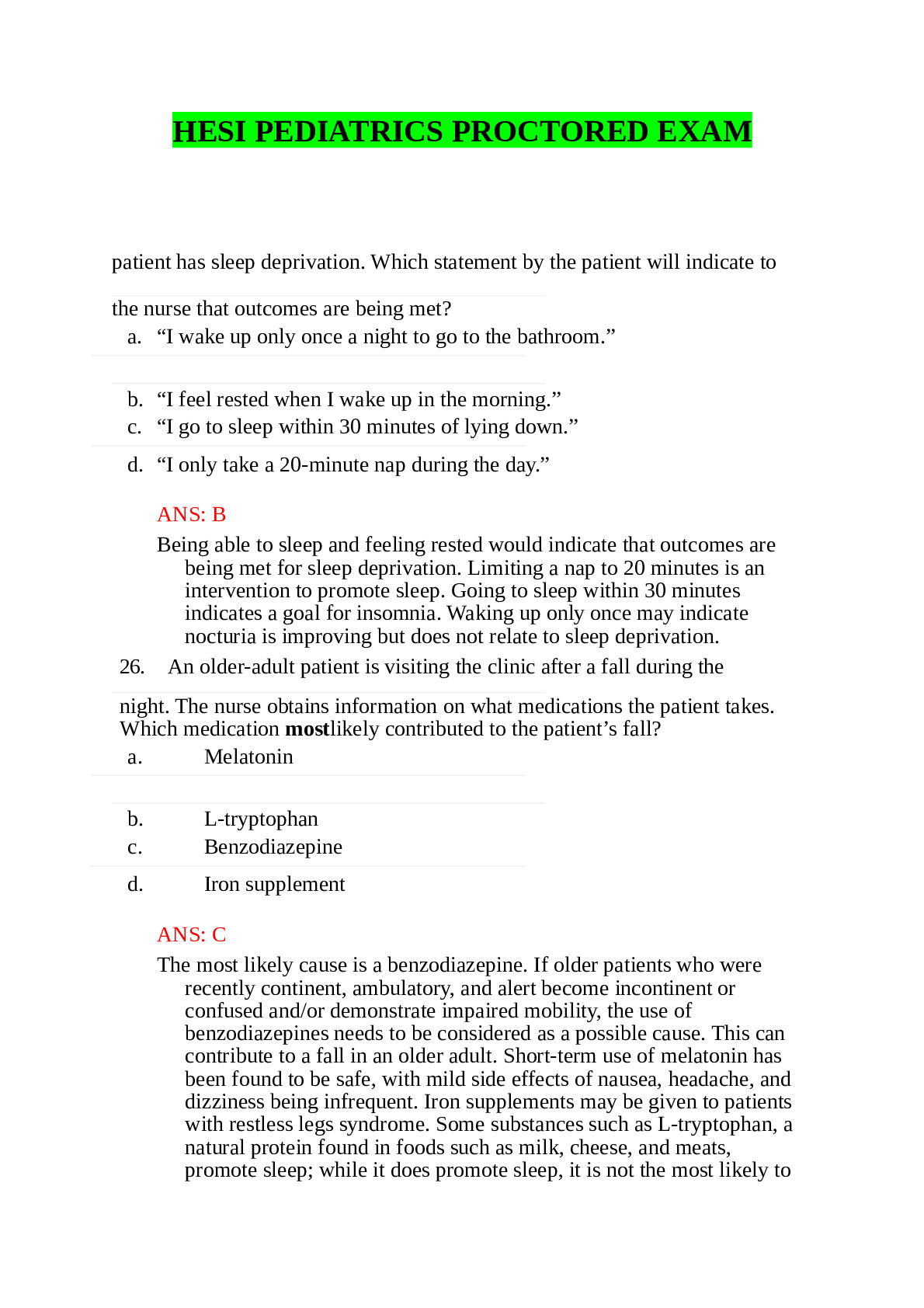
Also available in bundle (1)
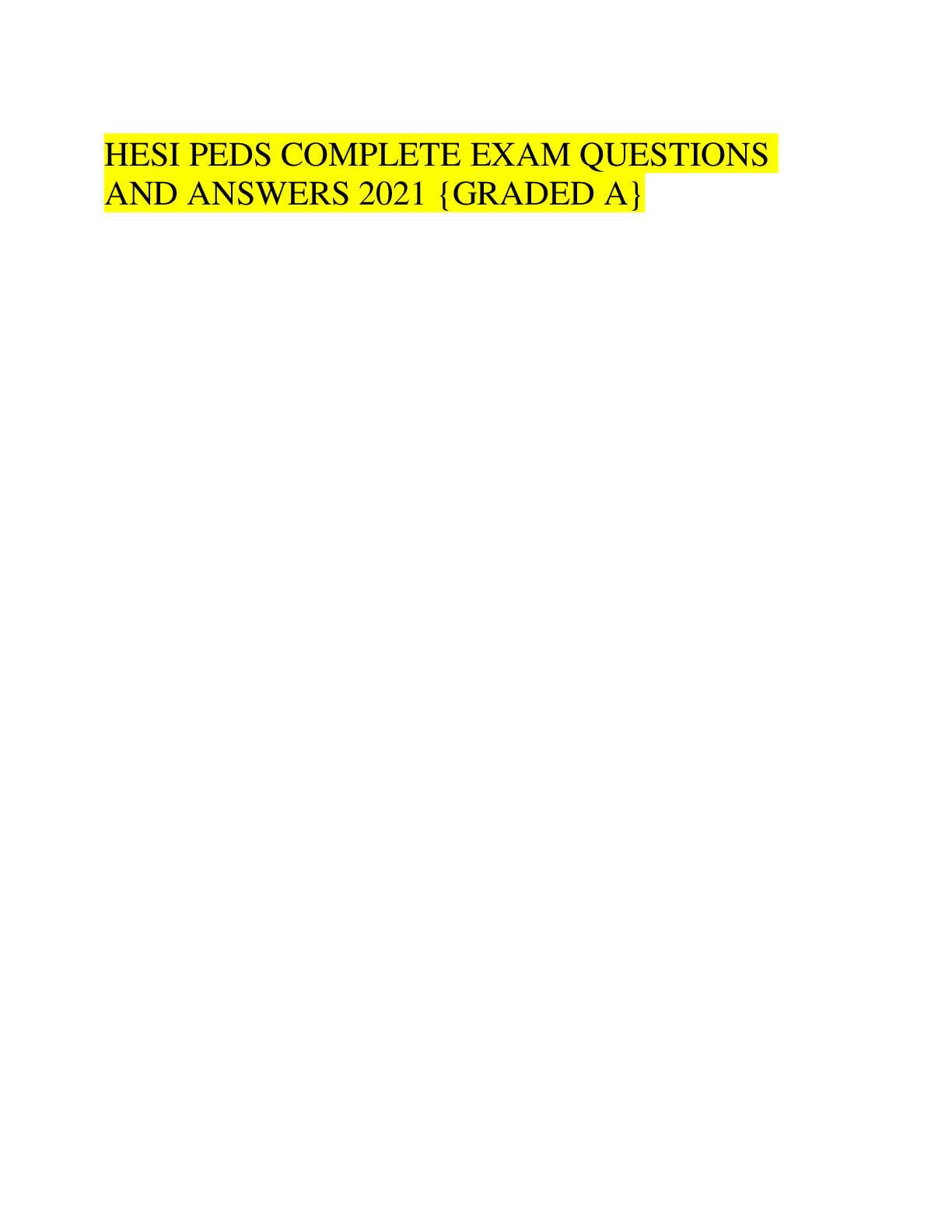
Hesi Pediatric 2021 exam 2022
HESI PEDS COMPLETE EXAM QUESTIONS AND ANSWERS 2021 {GRADED A} HESI PEDIATRICS V1, V2 & V3 TOTAL OF 134 QUESTIONS/ANSWER(S) 2020 RN Hesi Pediatric 2021 exam 2022 HESI PEDIATRICS PROCTORED EXAM
By clairegrades 1 year ago
$20
4
Reviews( 0 )
Document information
Connected school, study & course
About the document
Uploaded On
Jun 28, 2022
Number of pages
15
Written in
Additional information
This document has been written for:
Uploaded
Jun 28, 2022
Downloads
0
Views
52

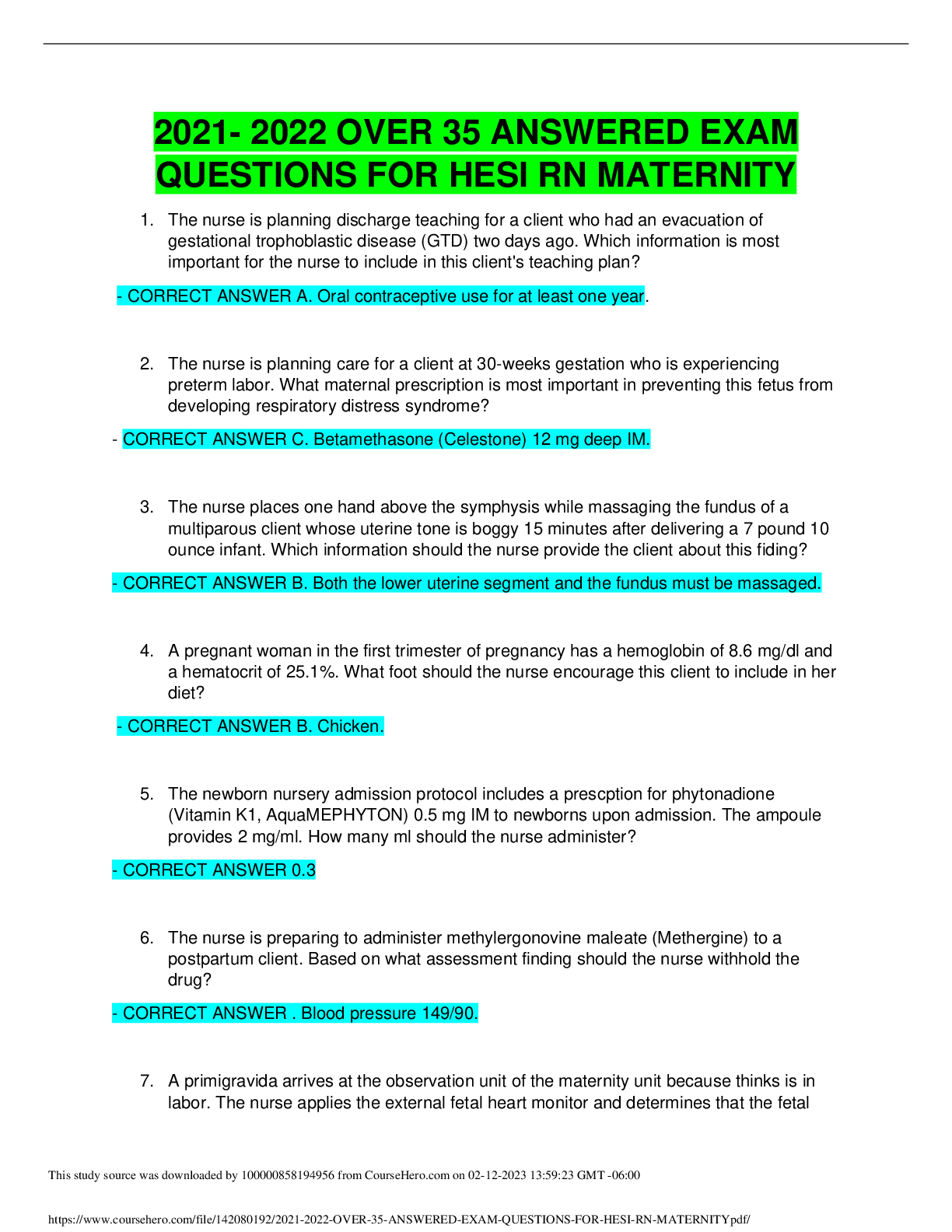
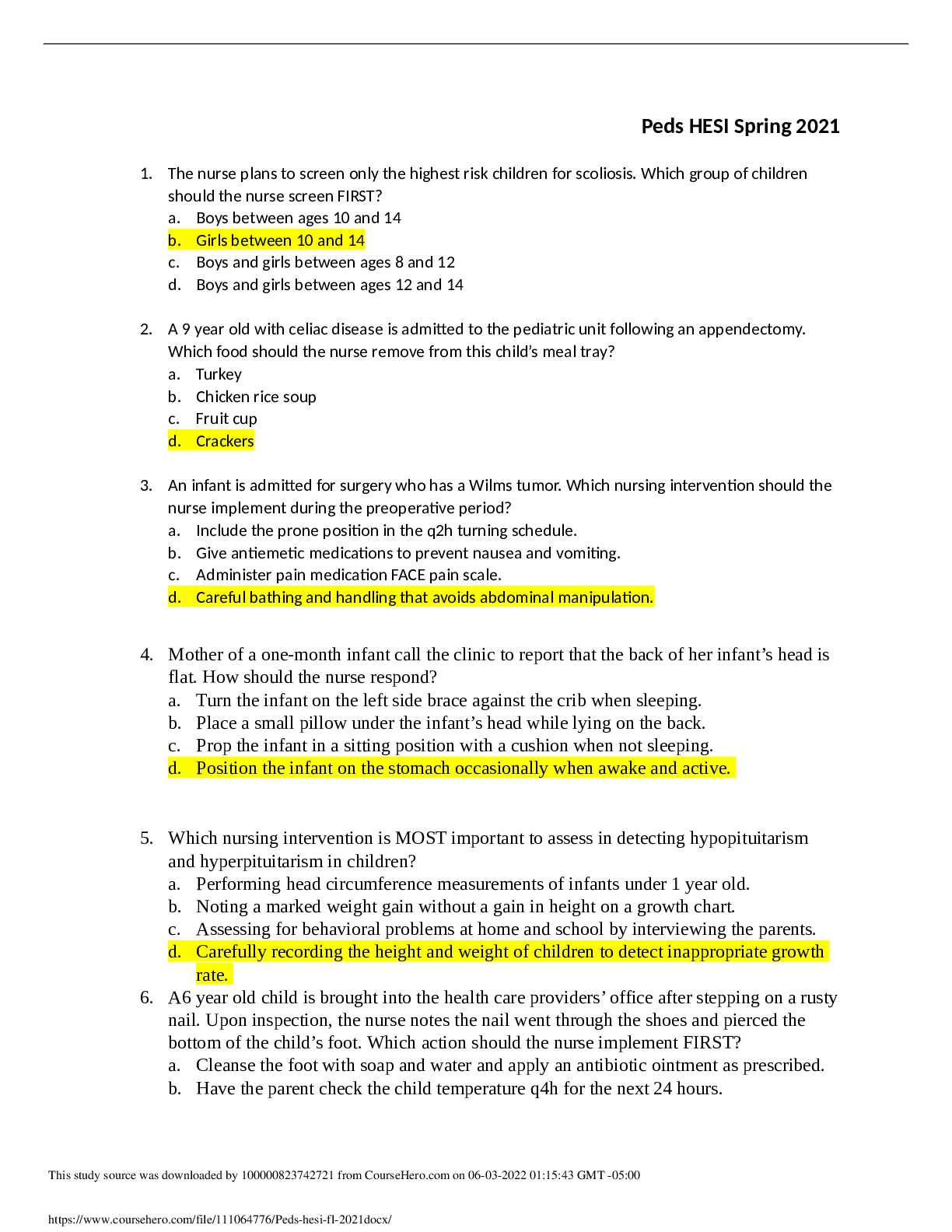
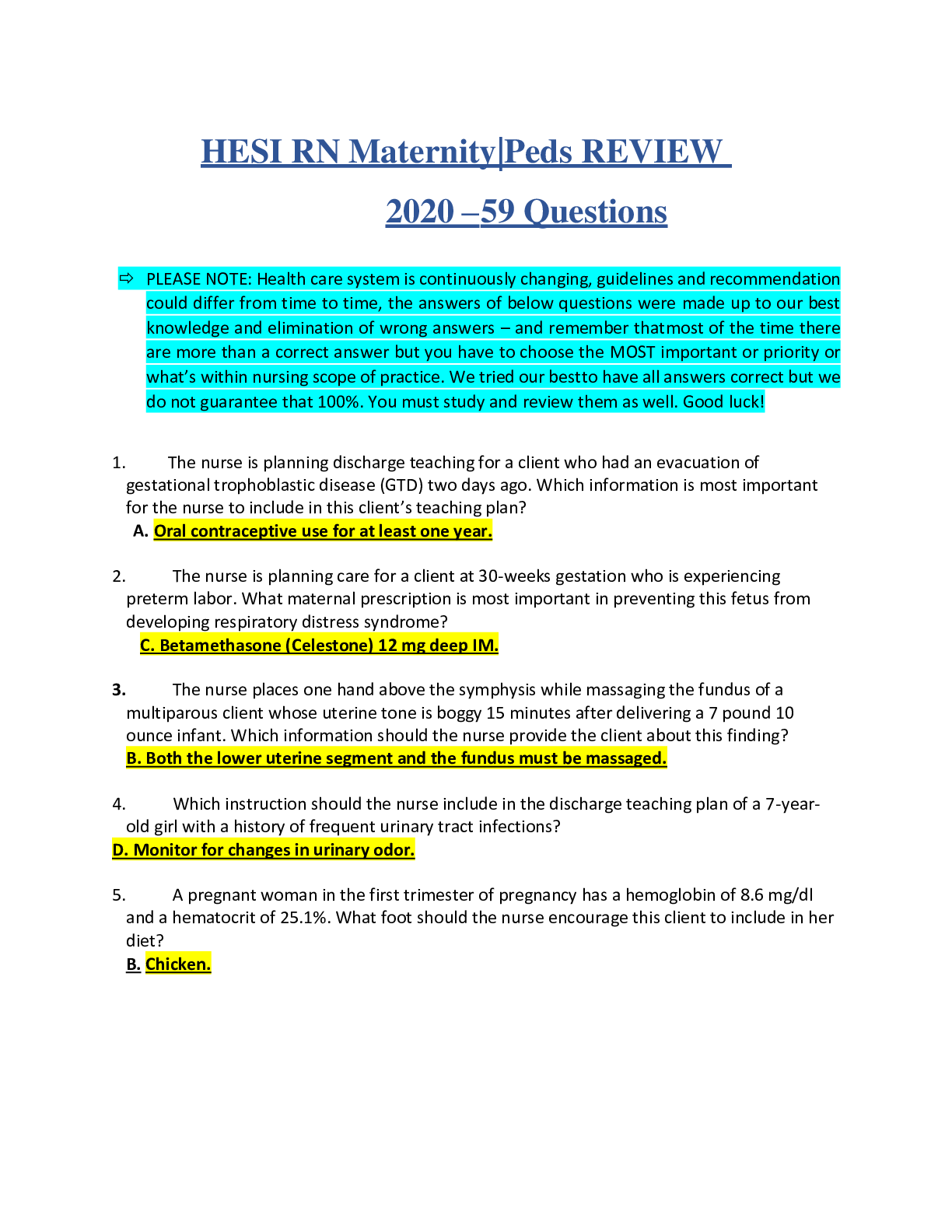
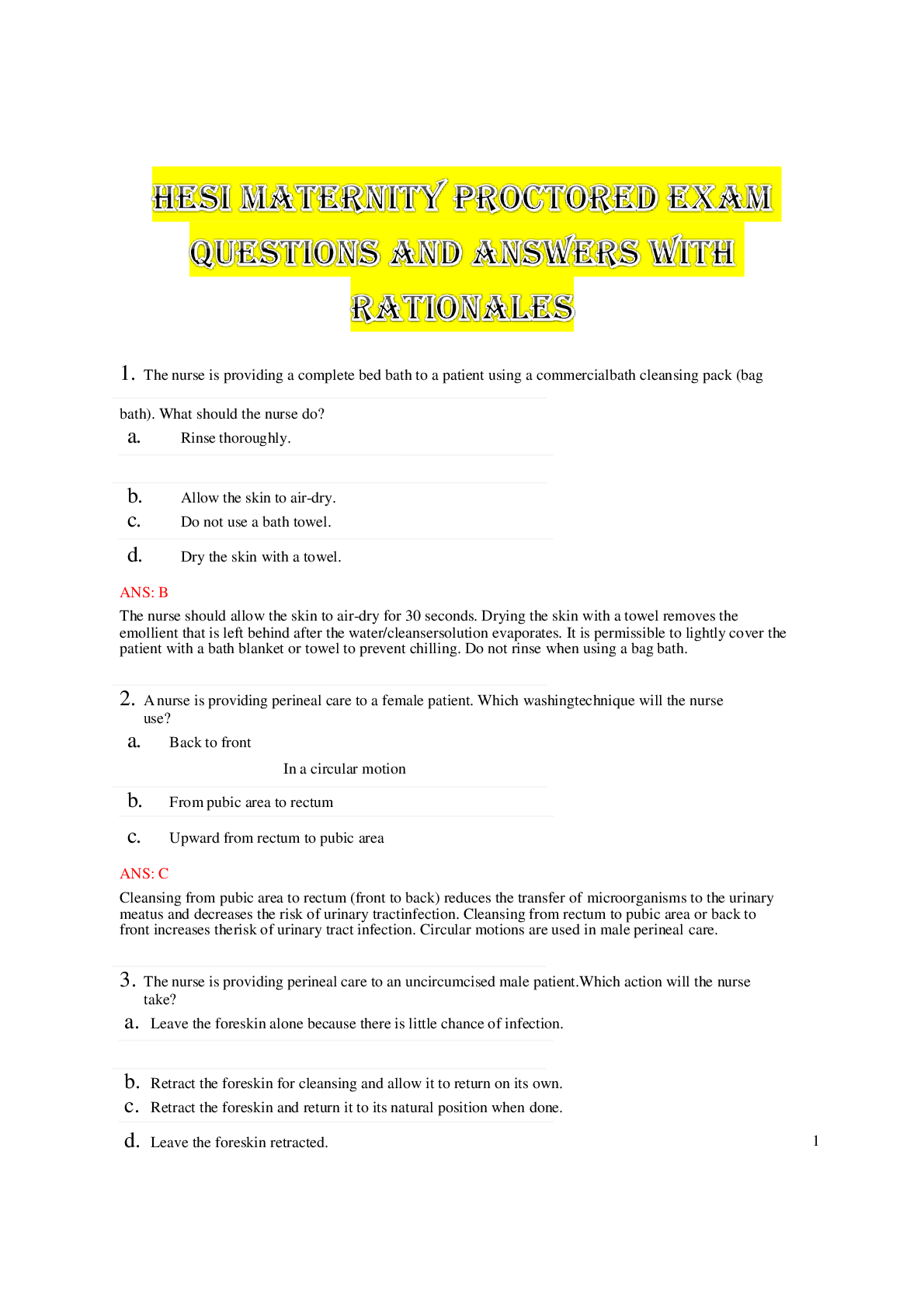
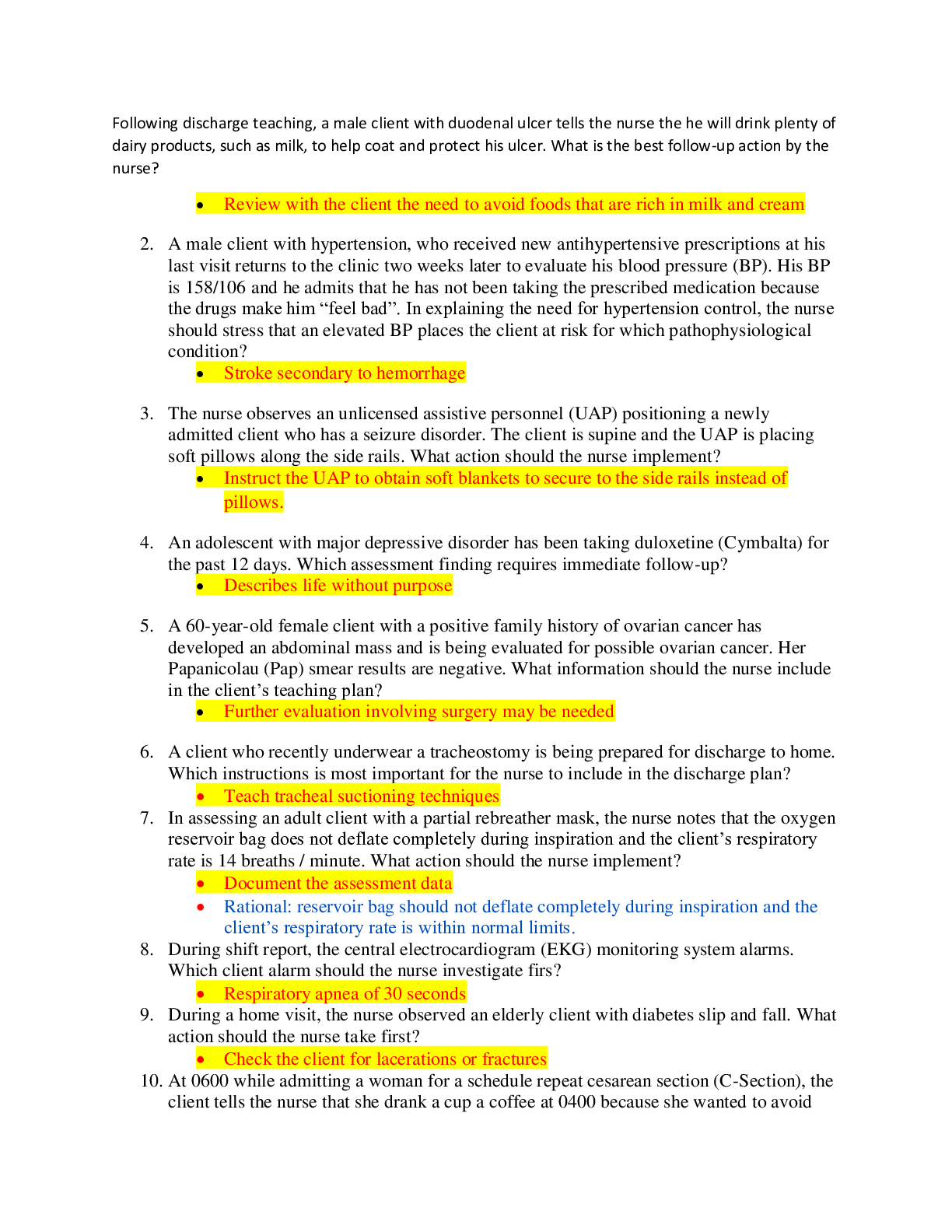
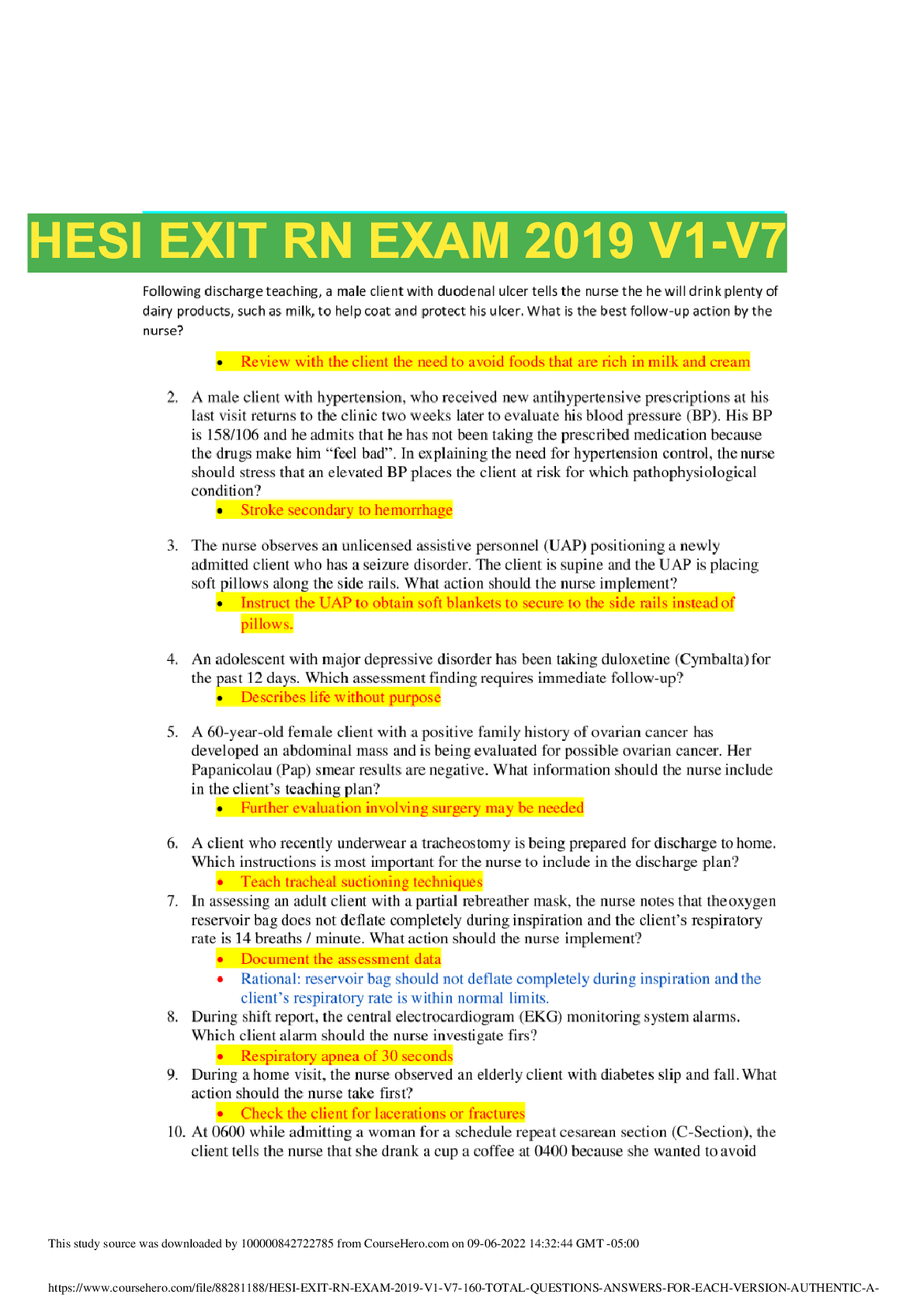
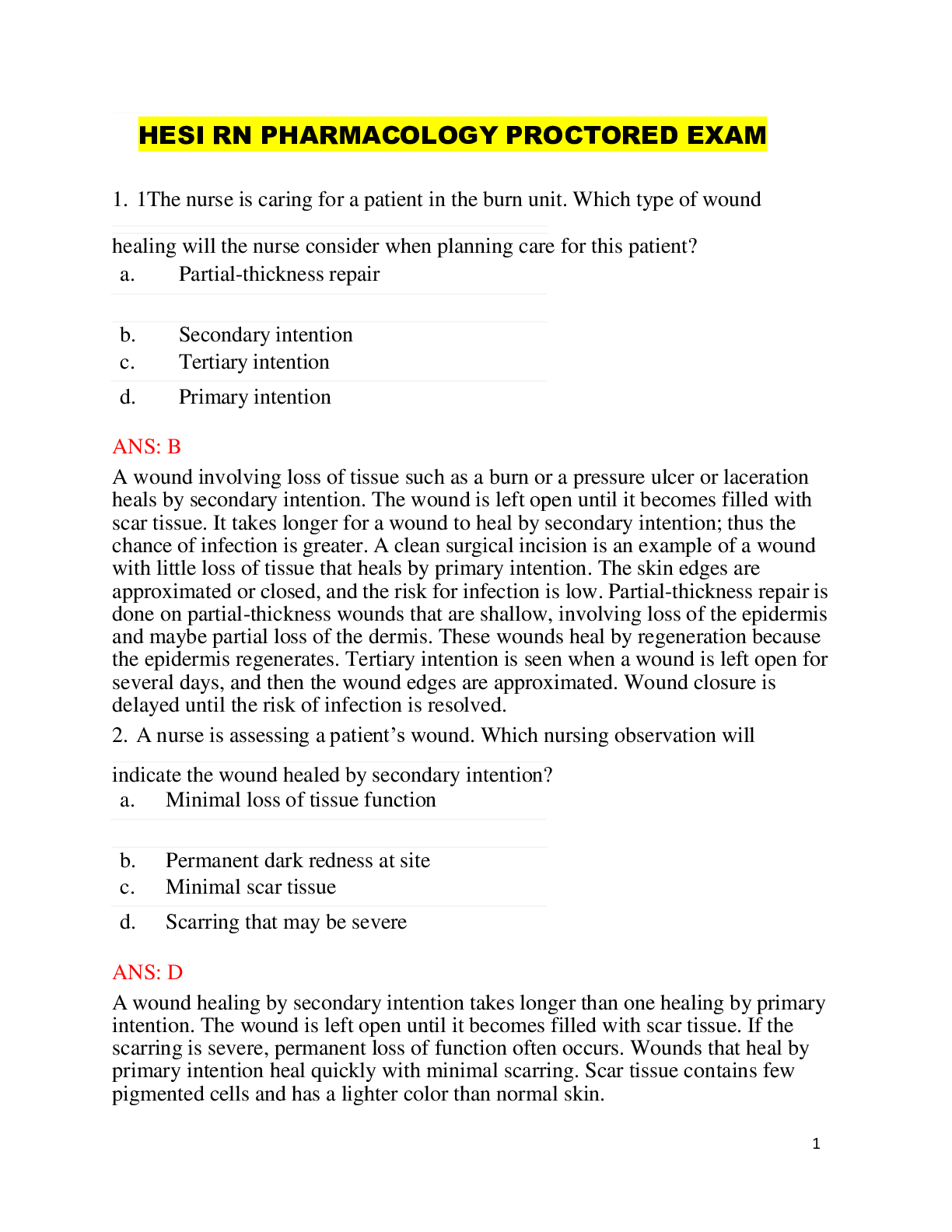
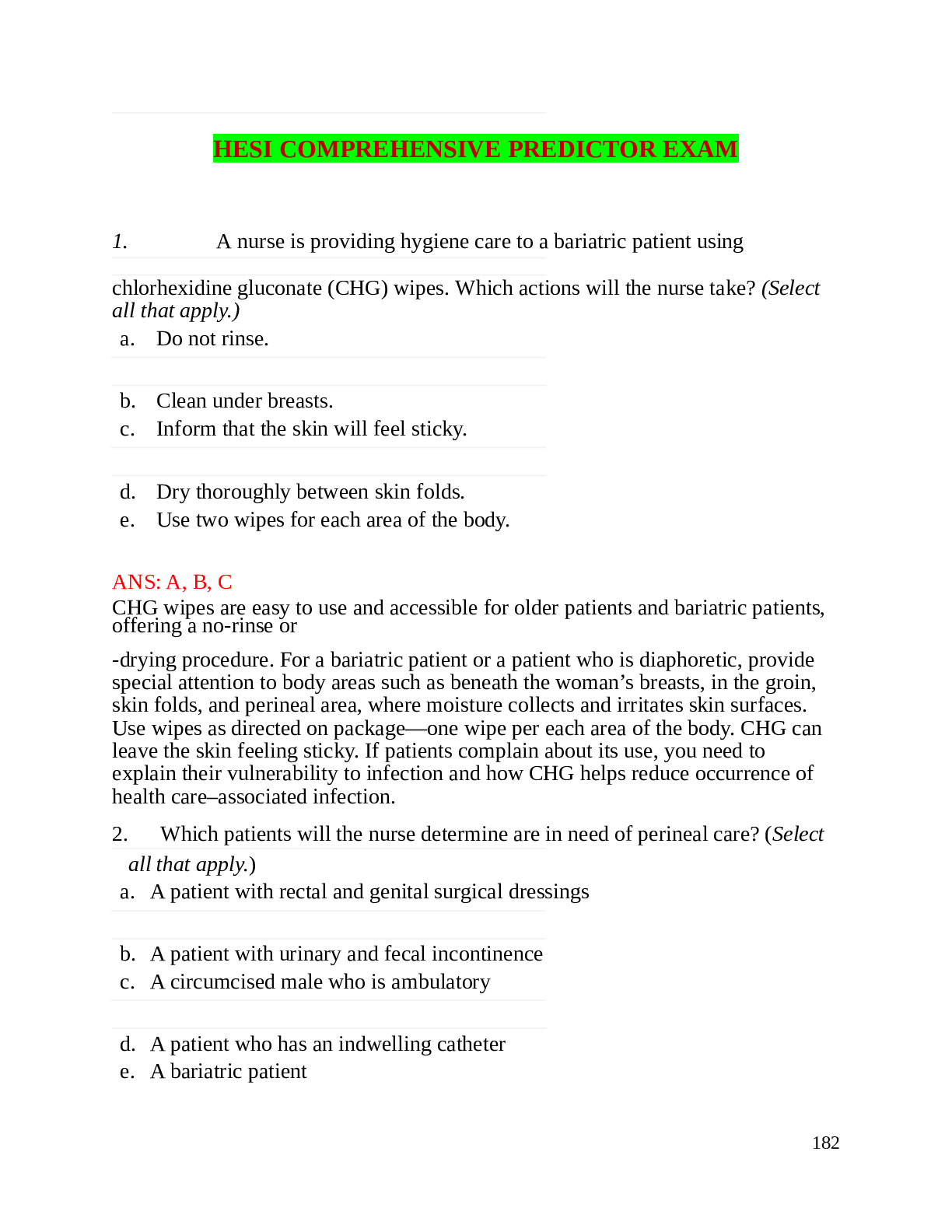
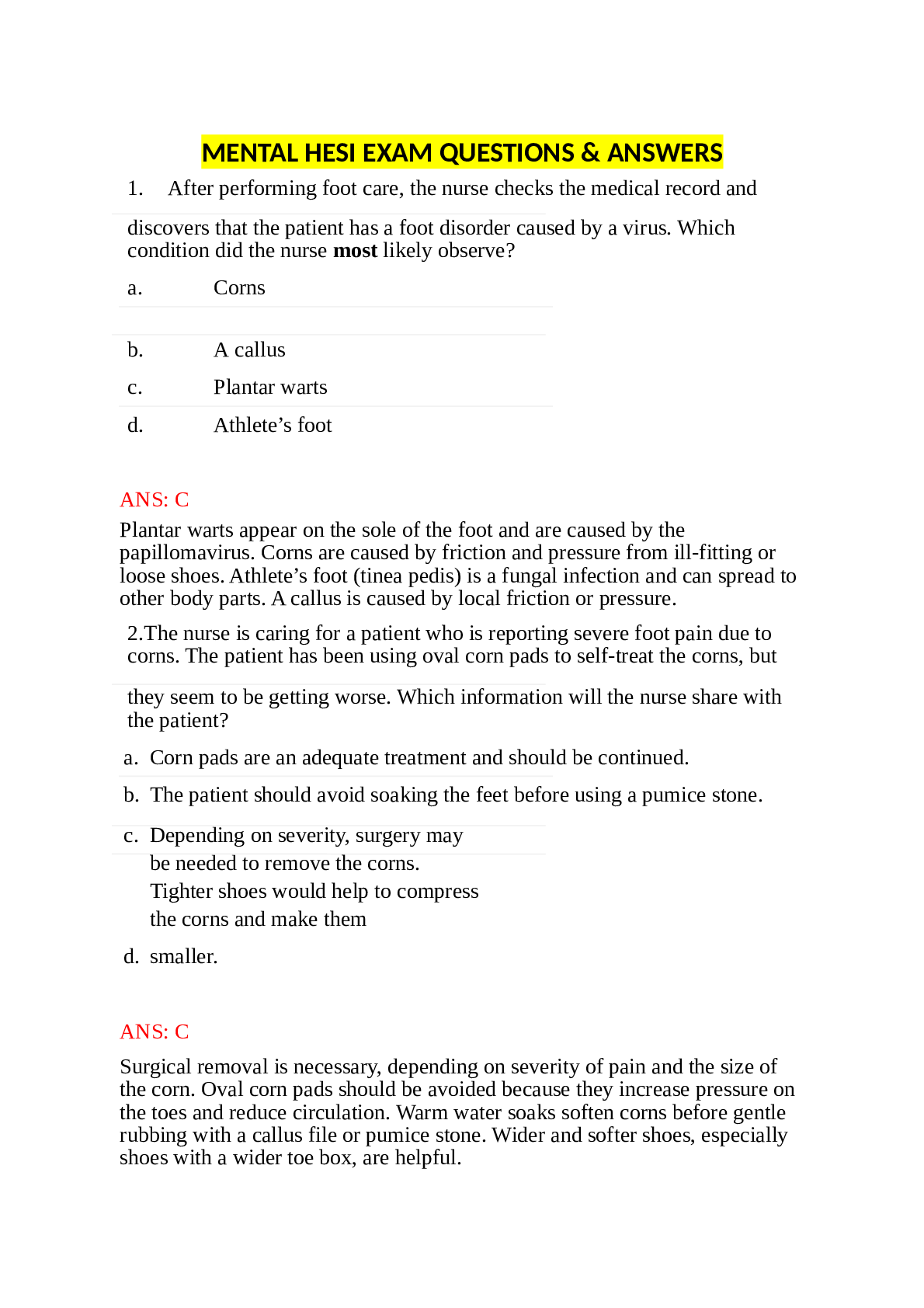
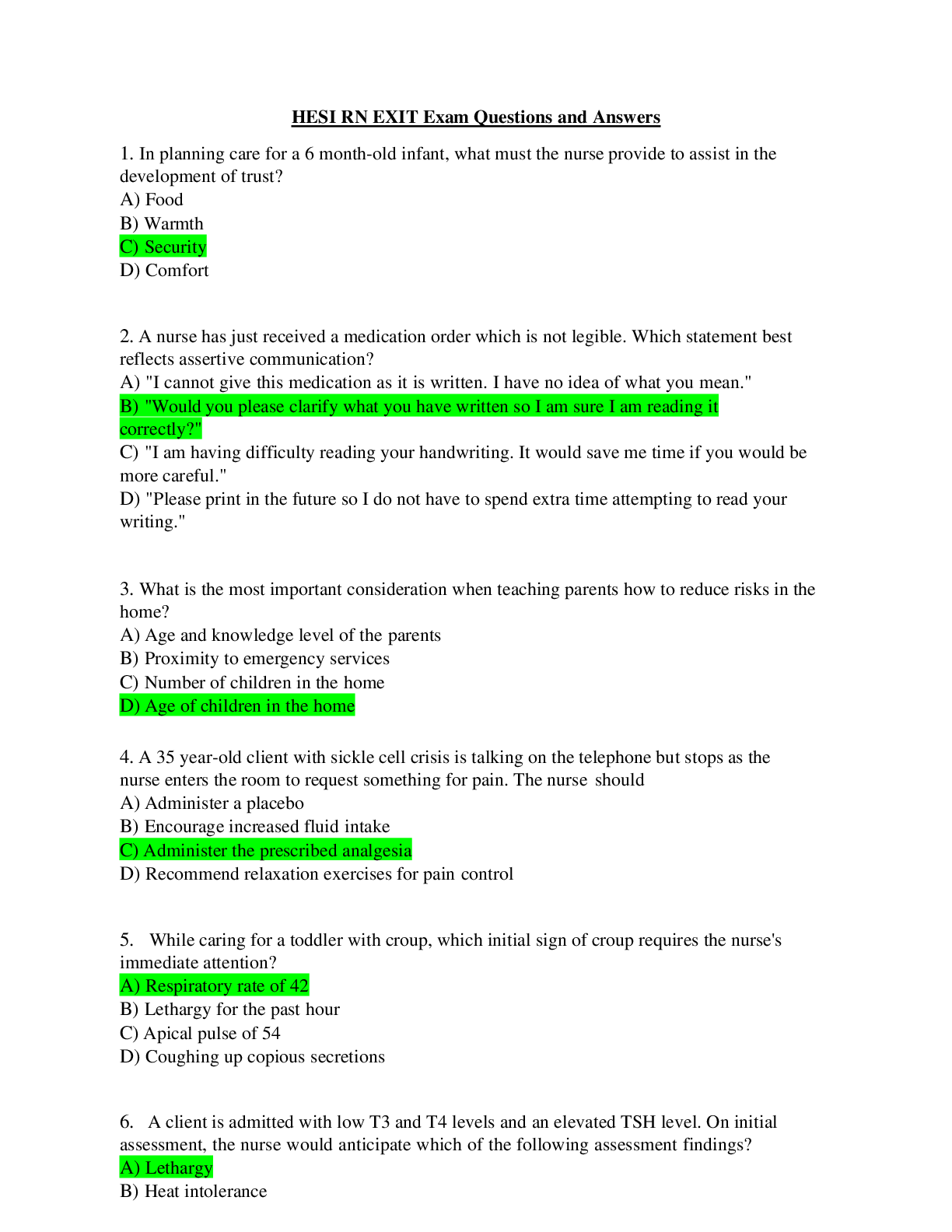
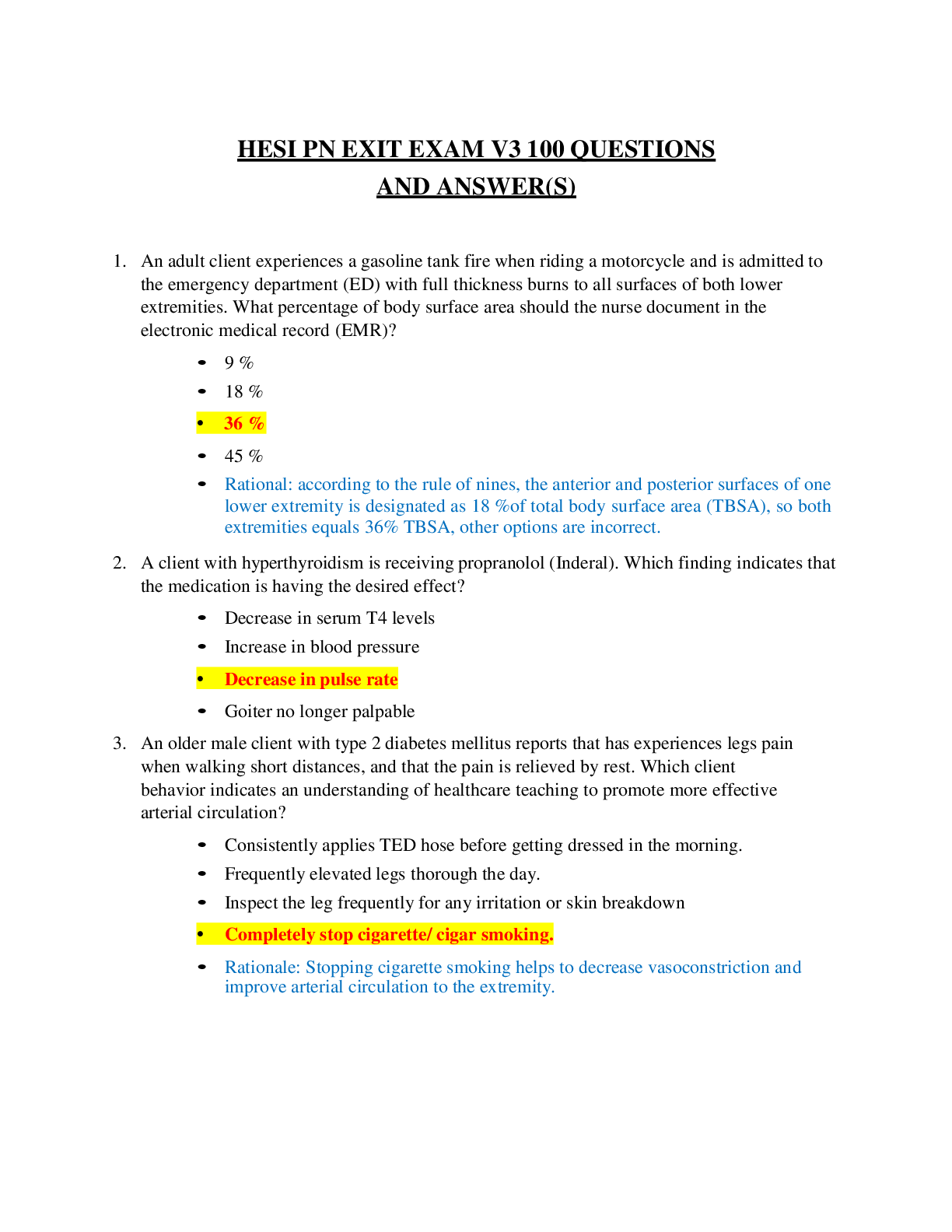

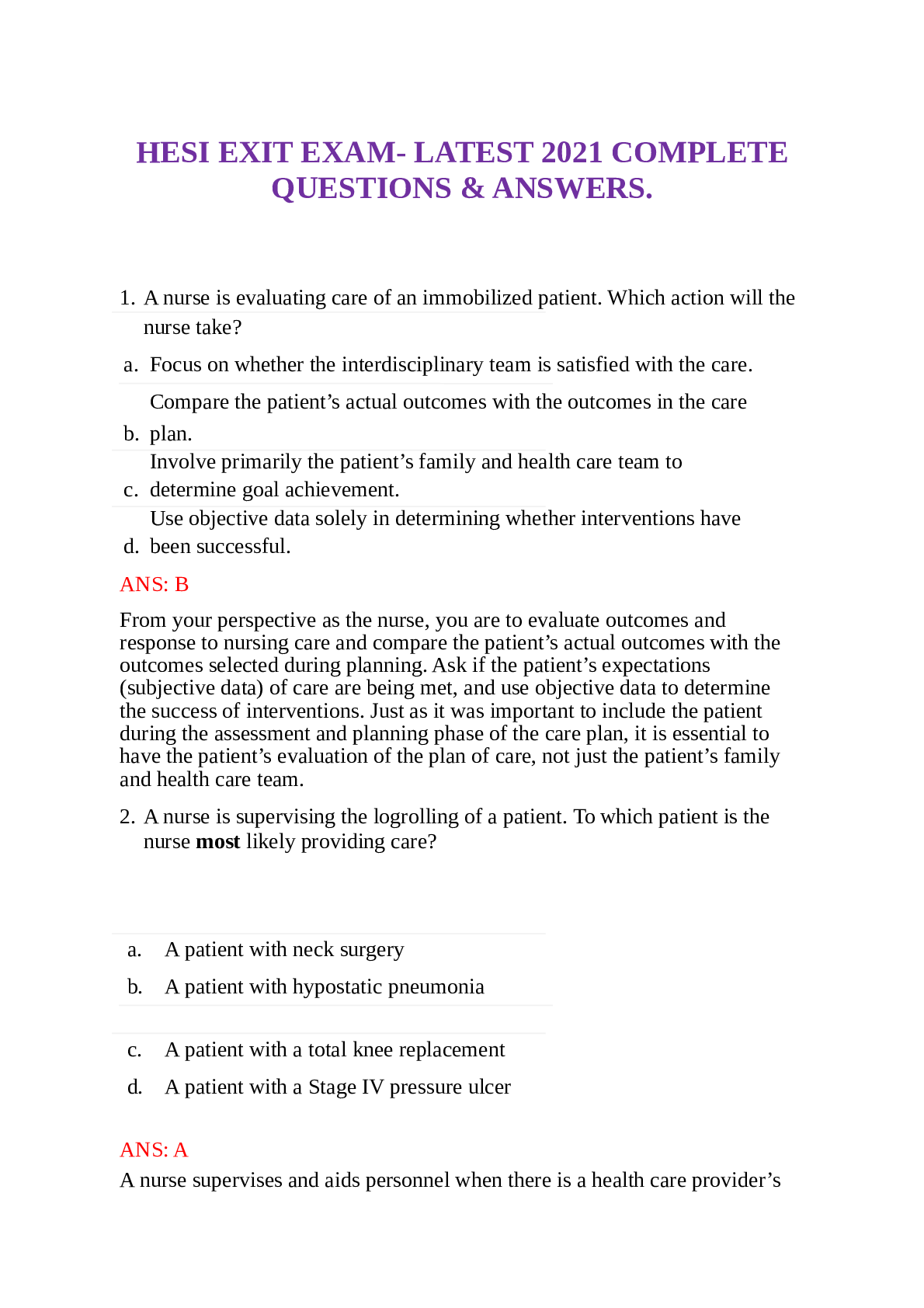

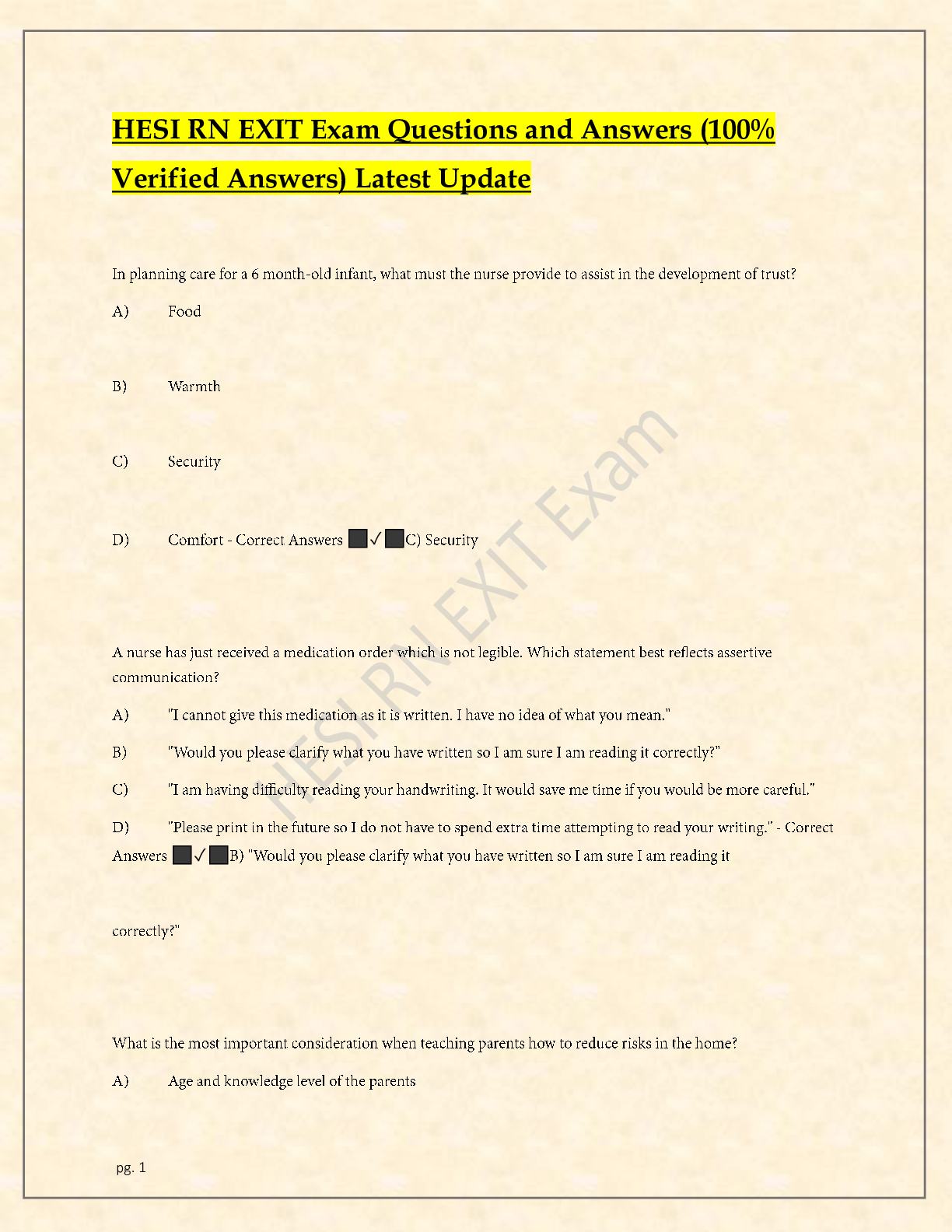
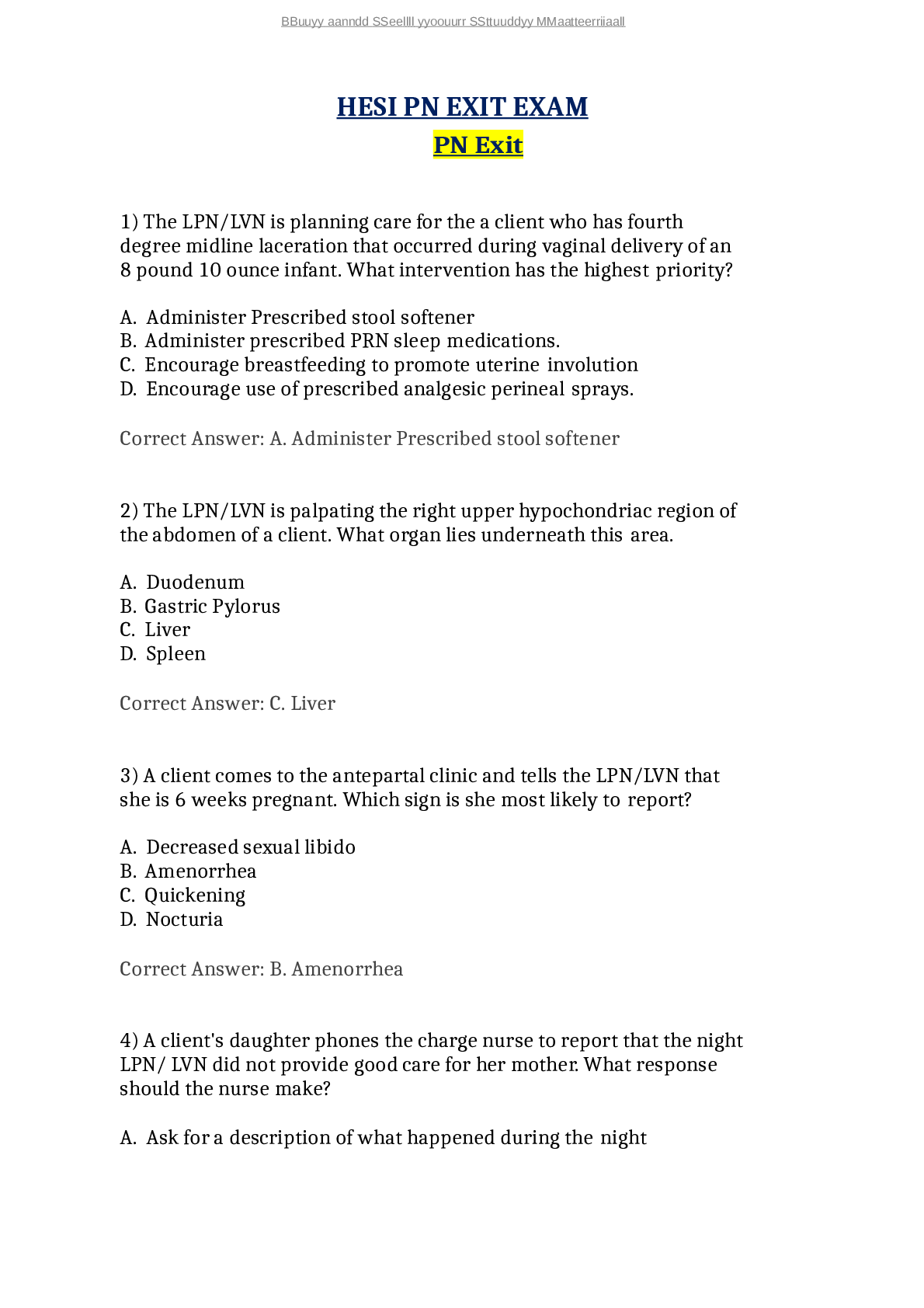
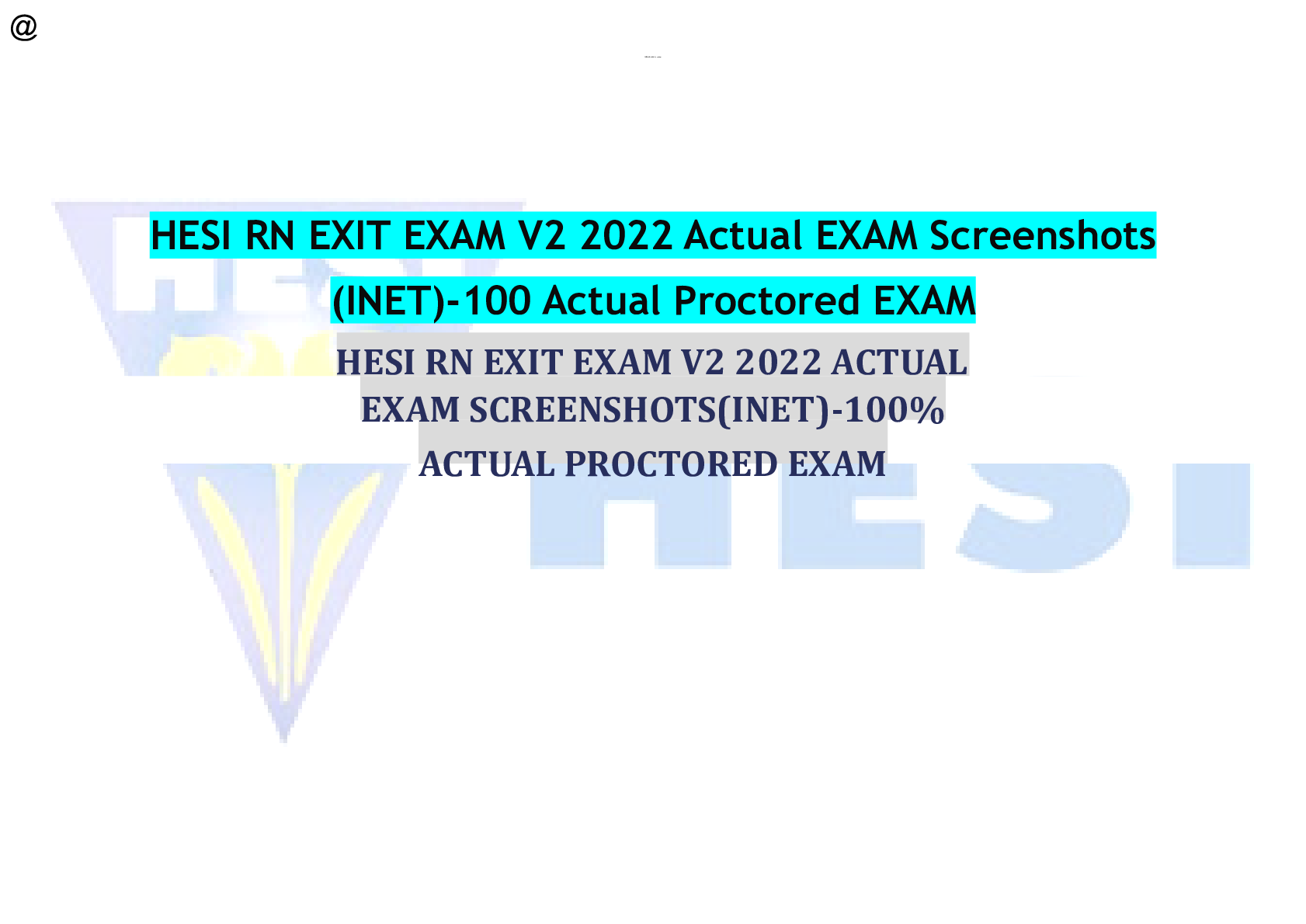
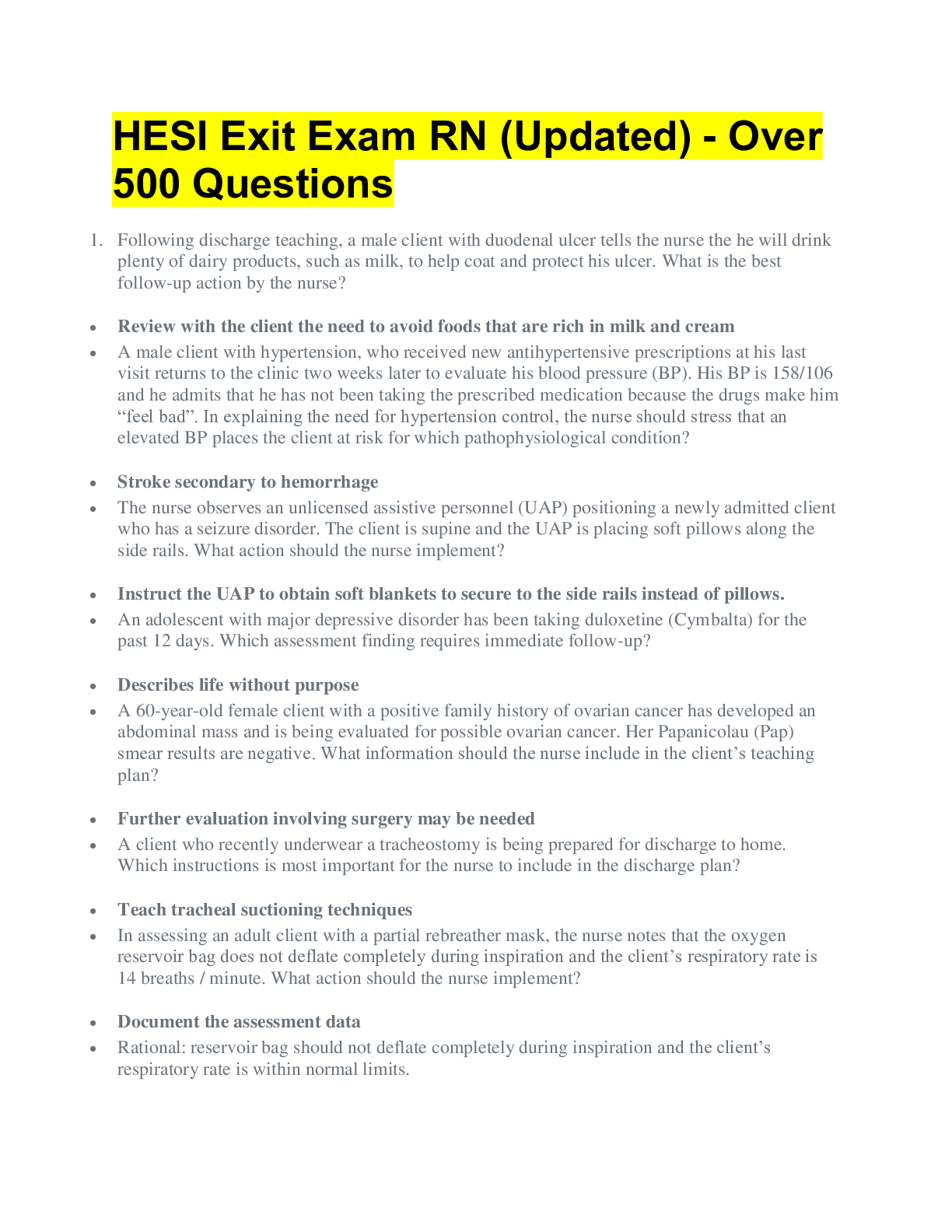
 (1).png)
